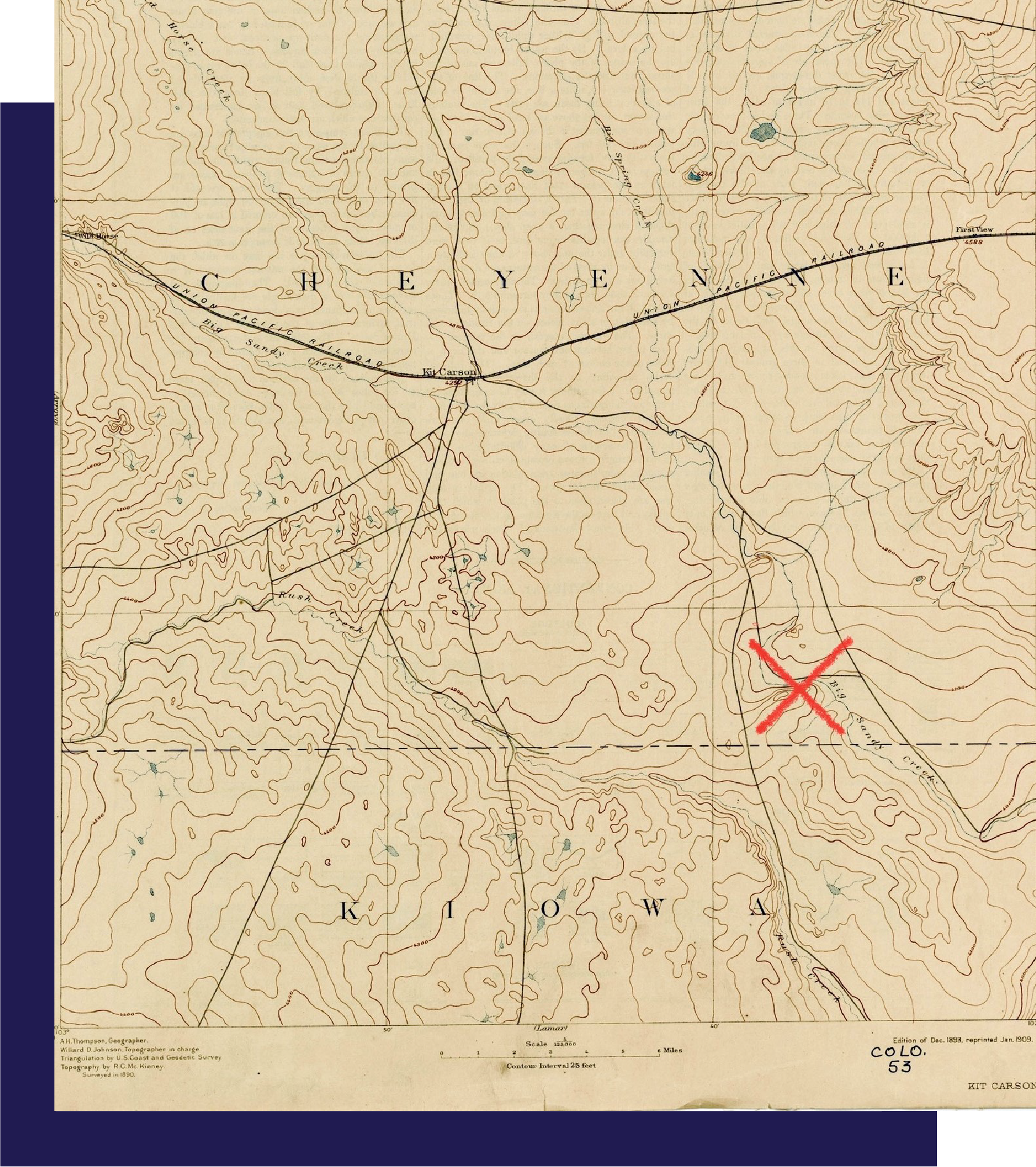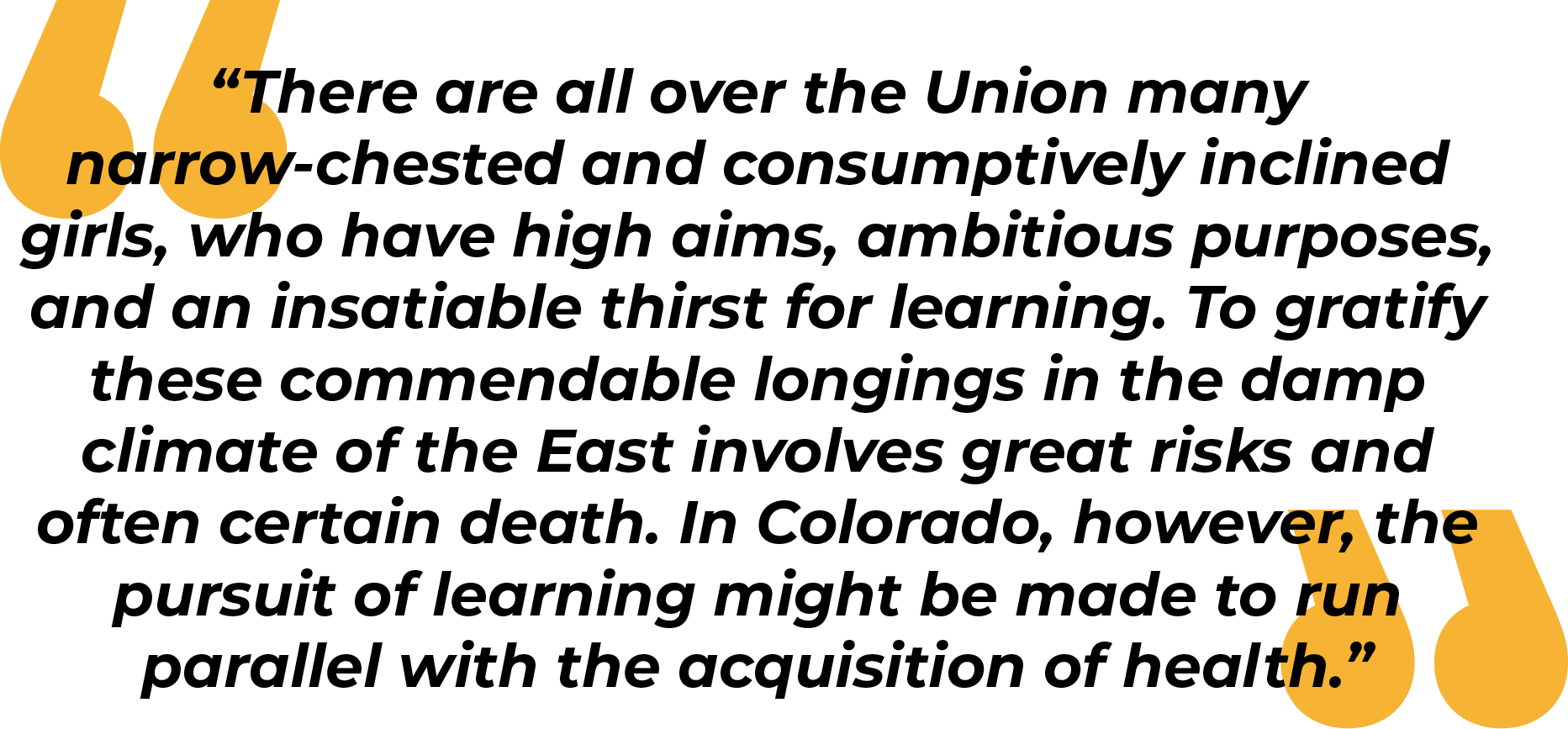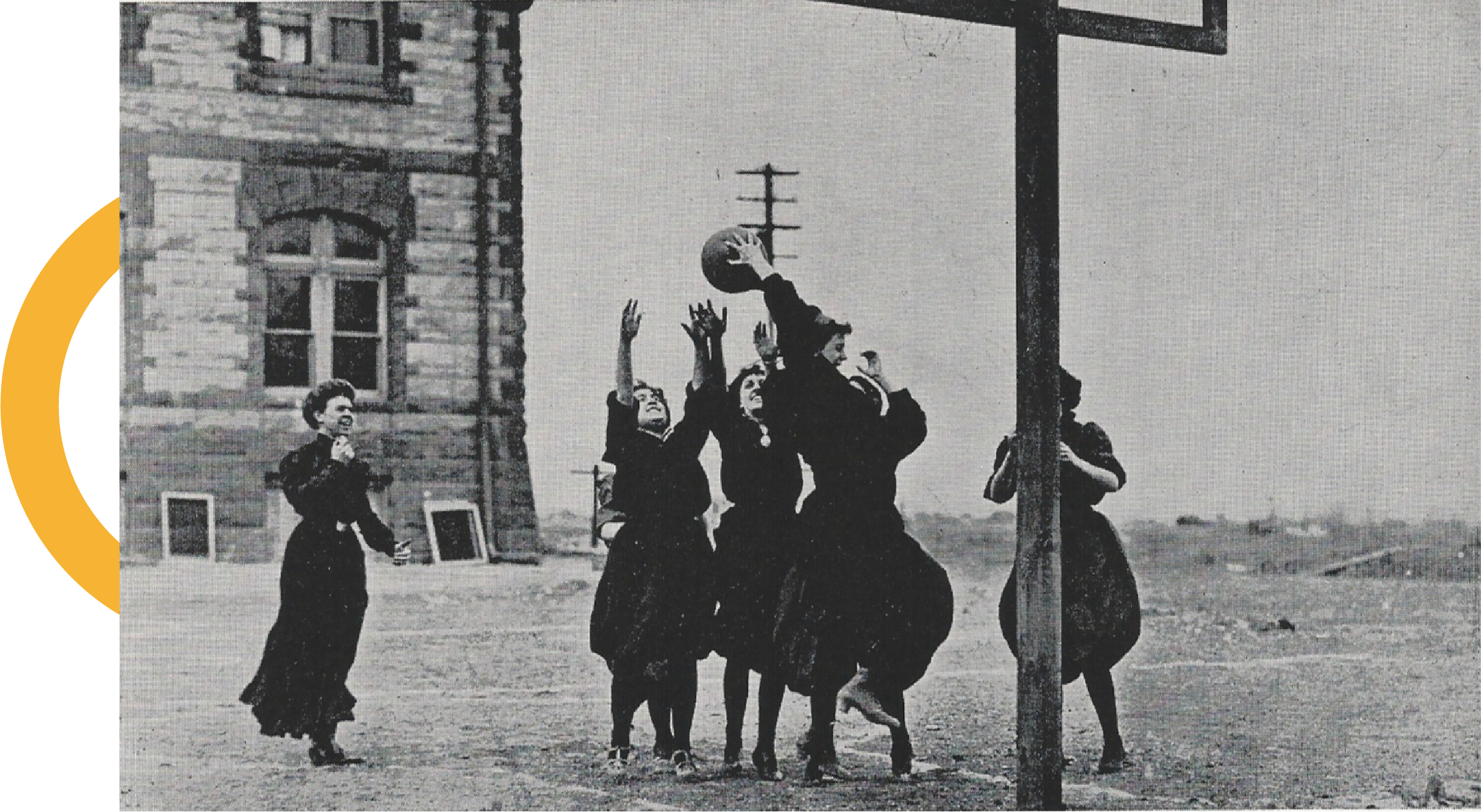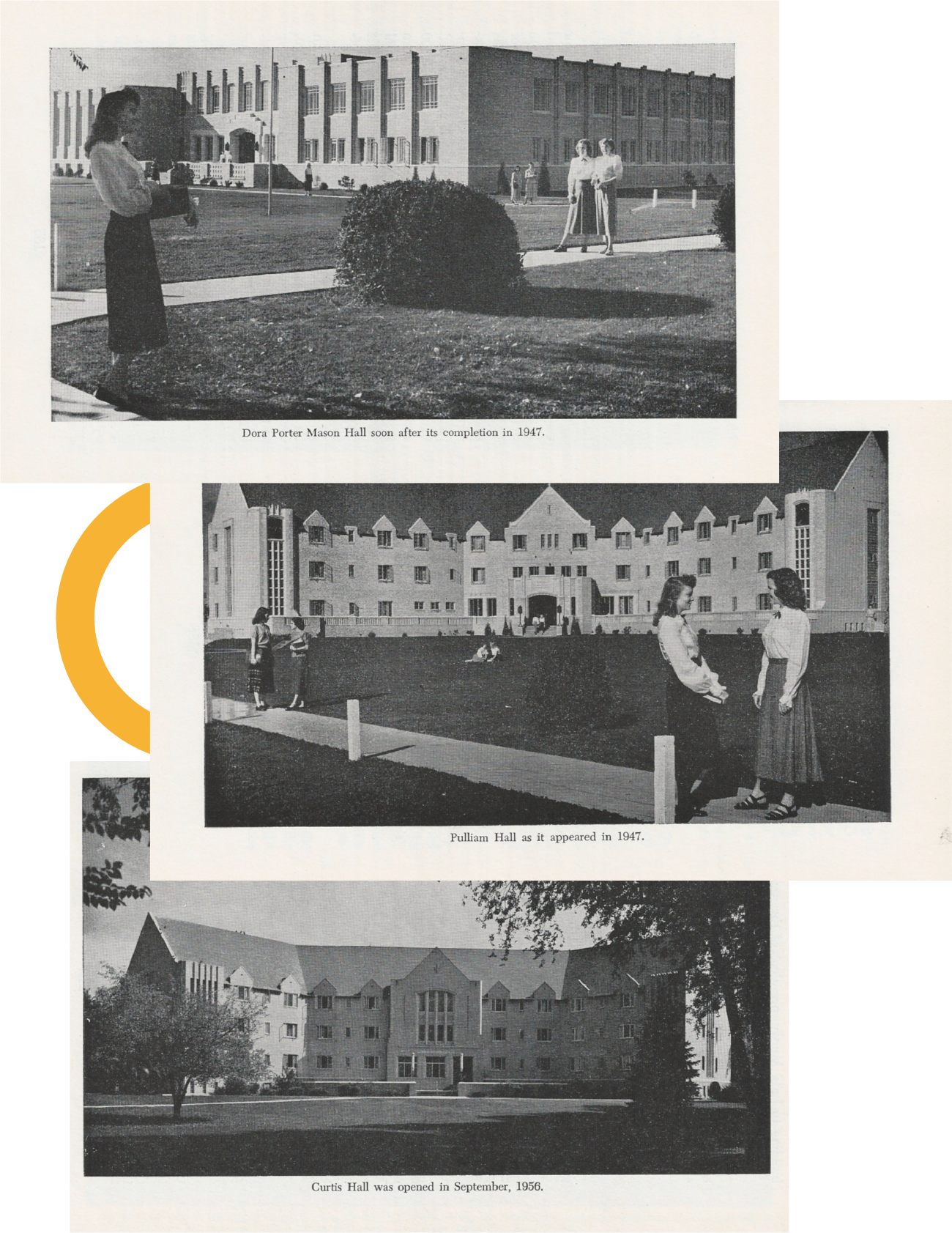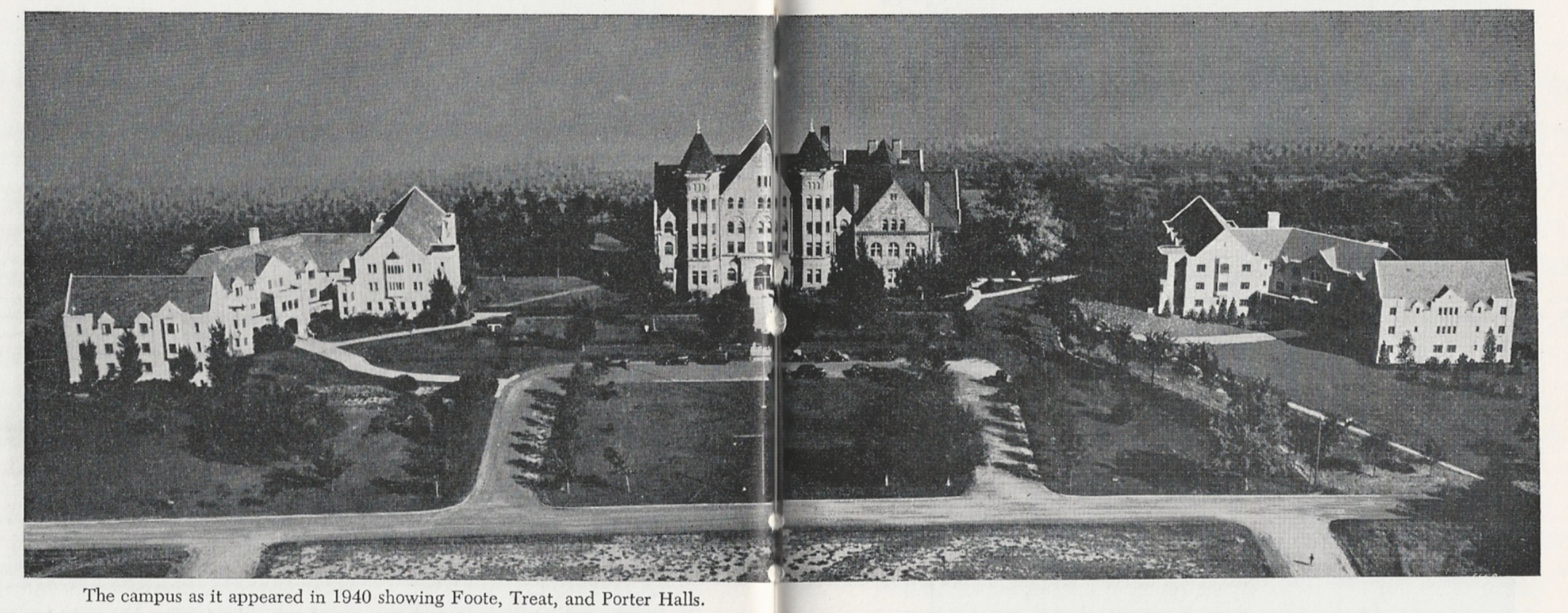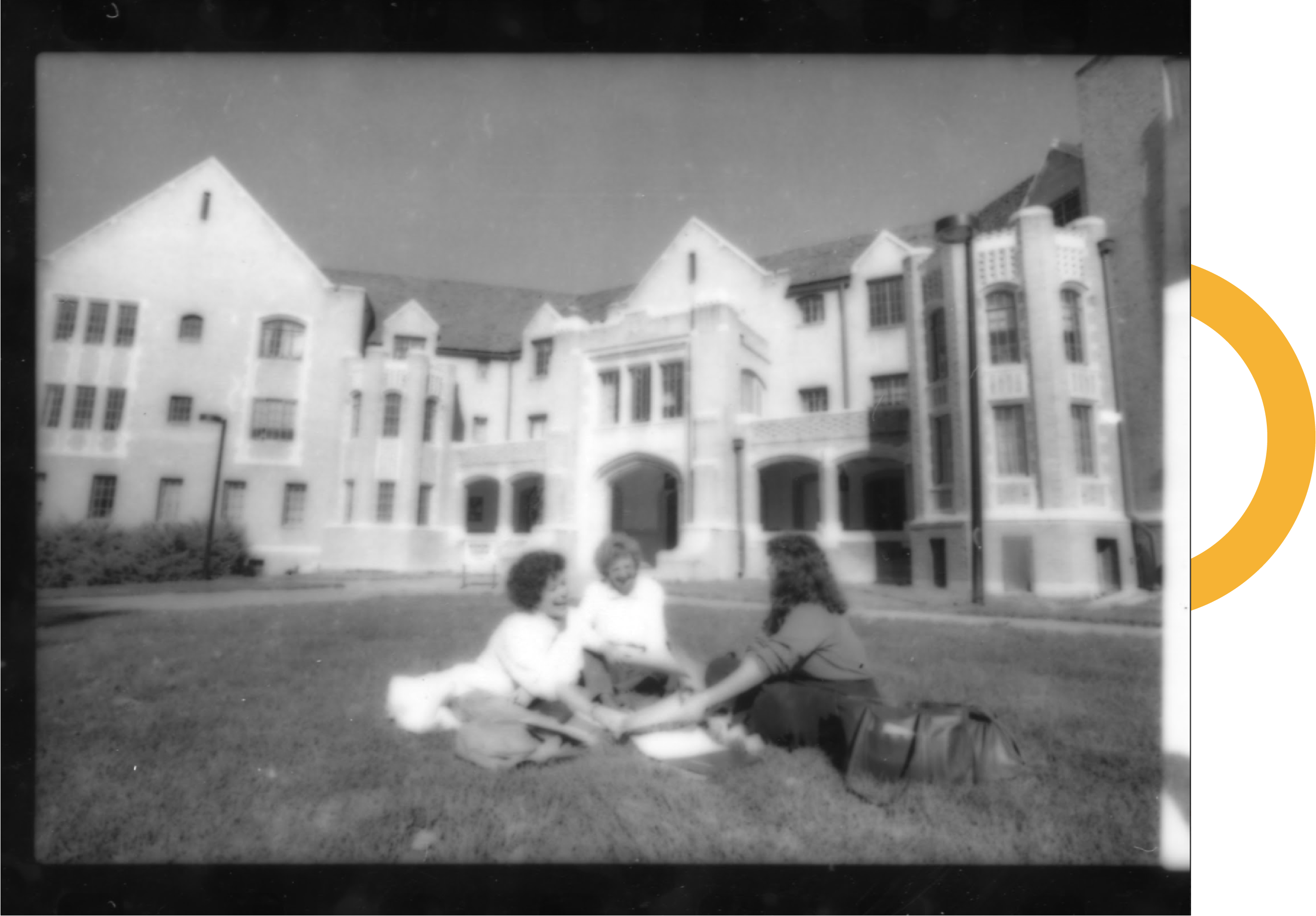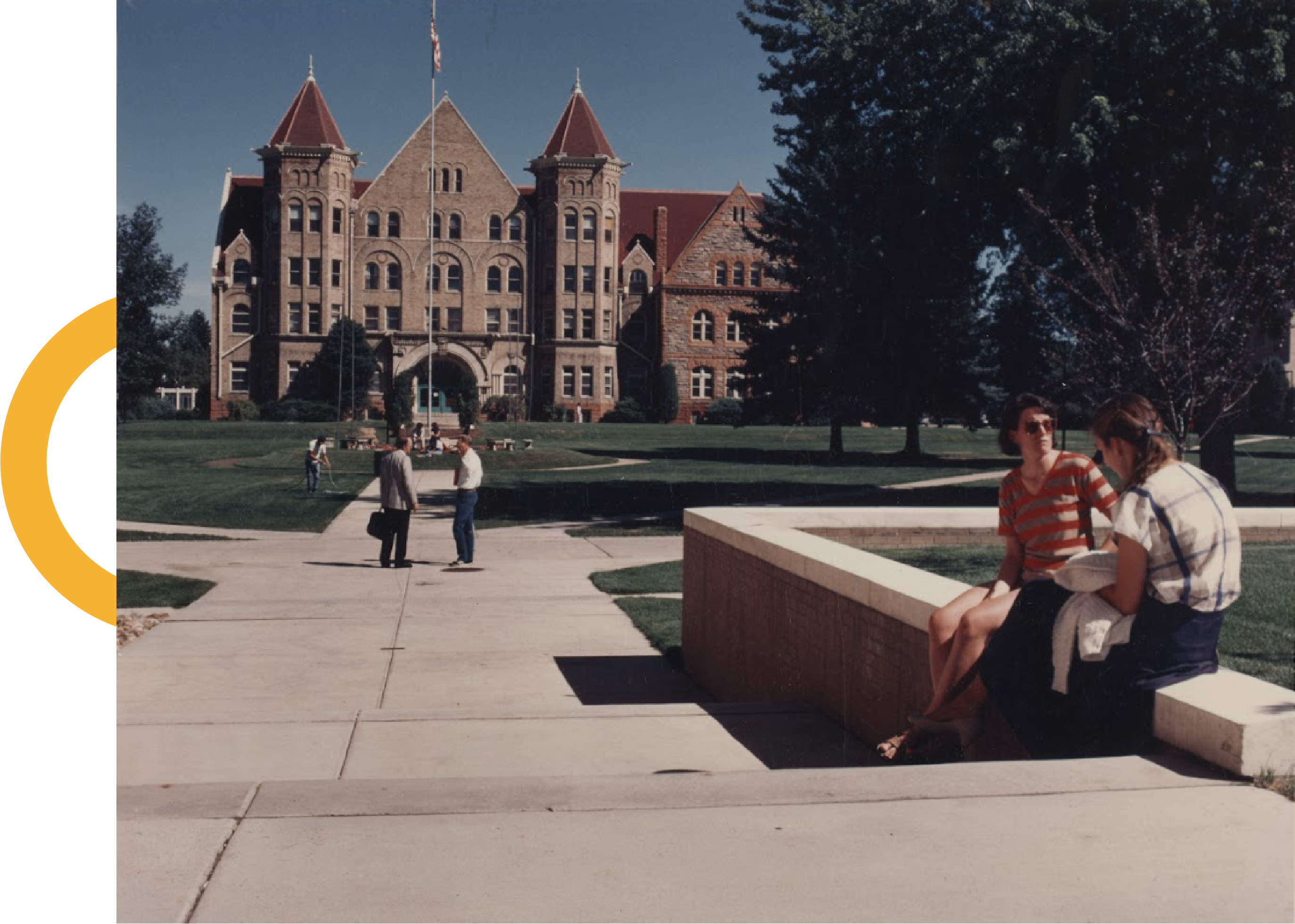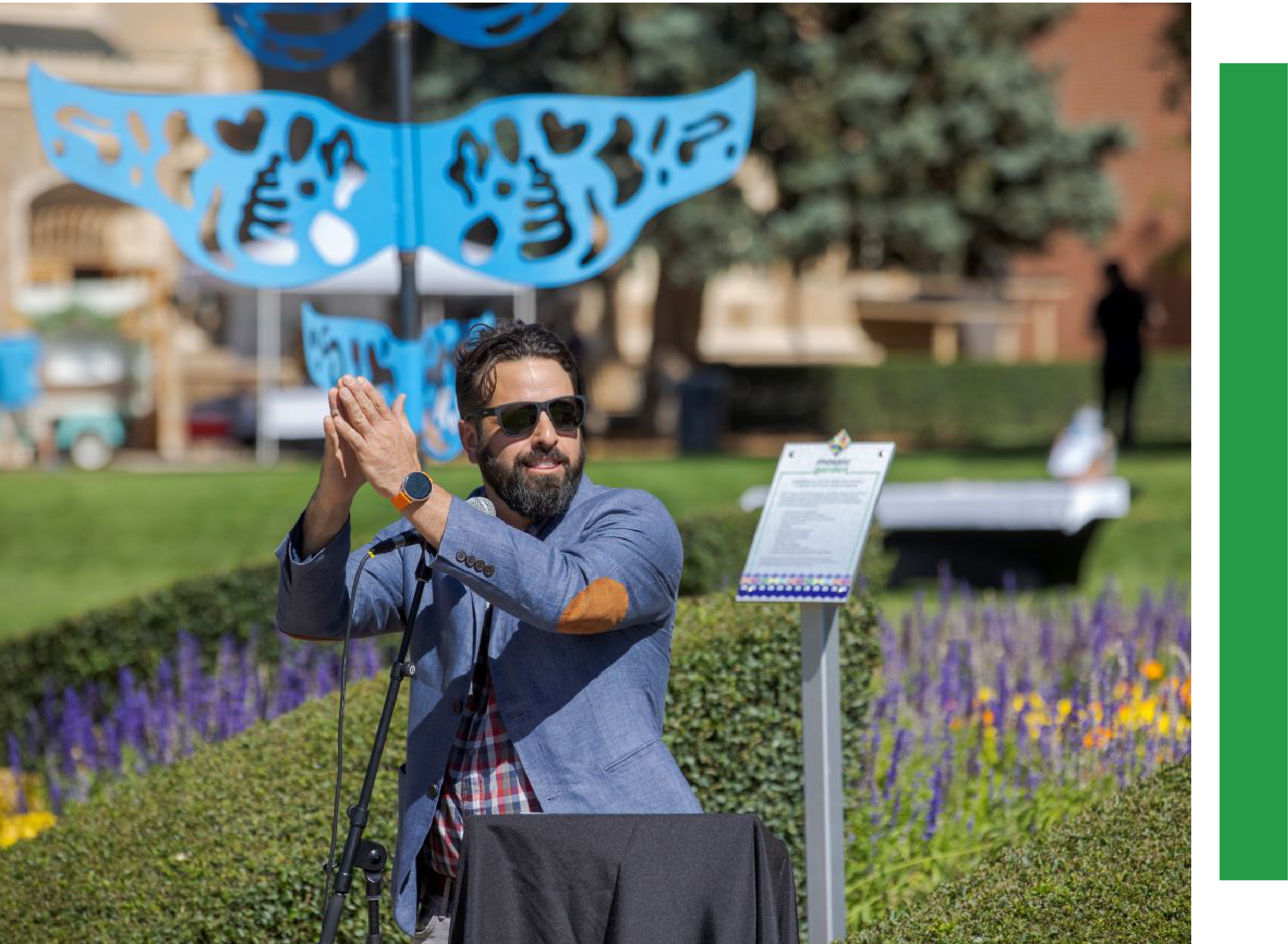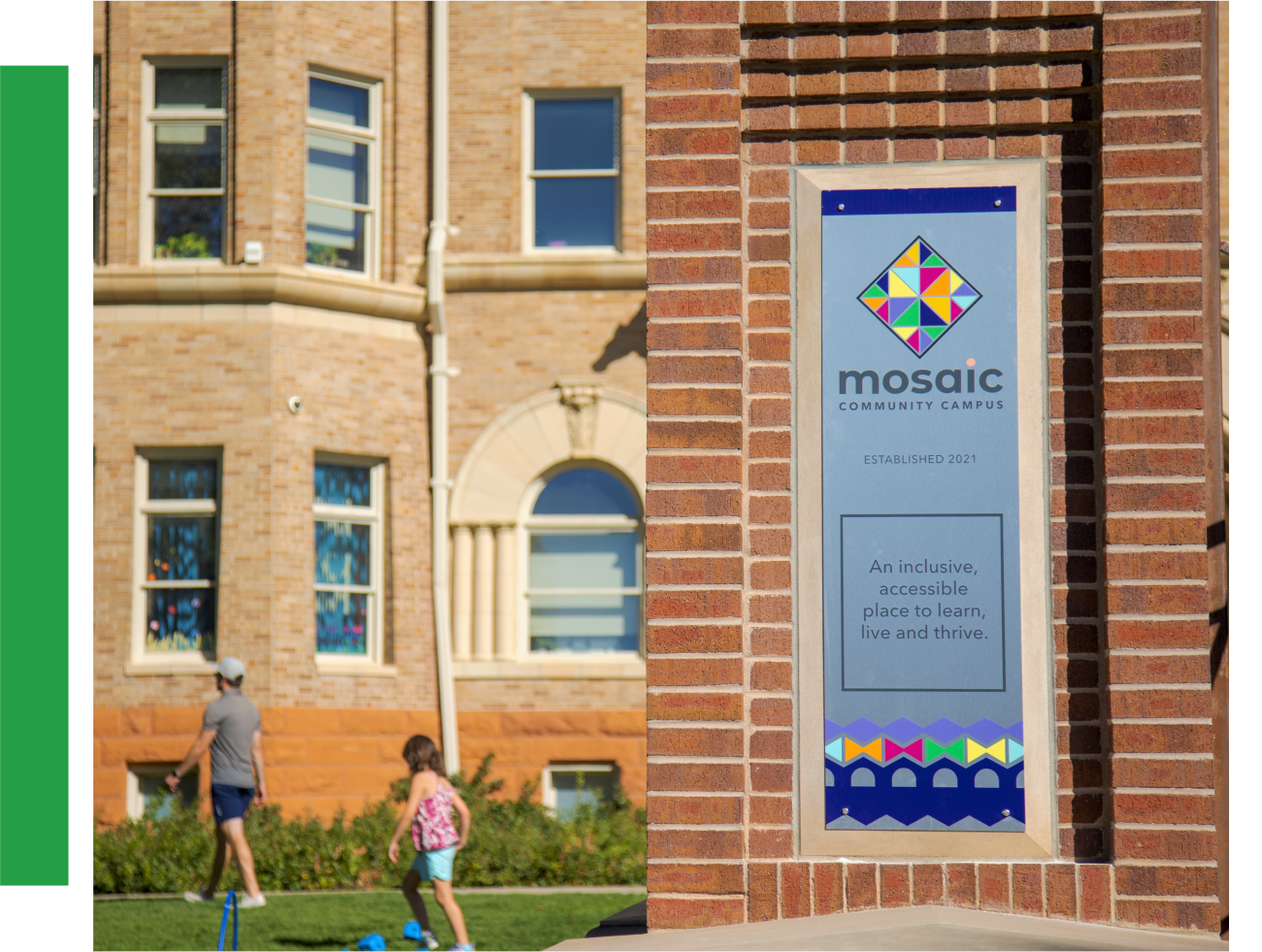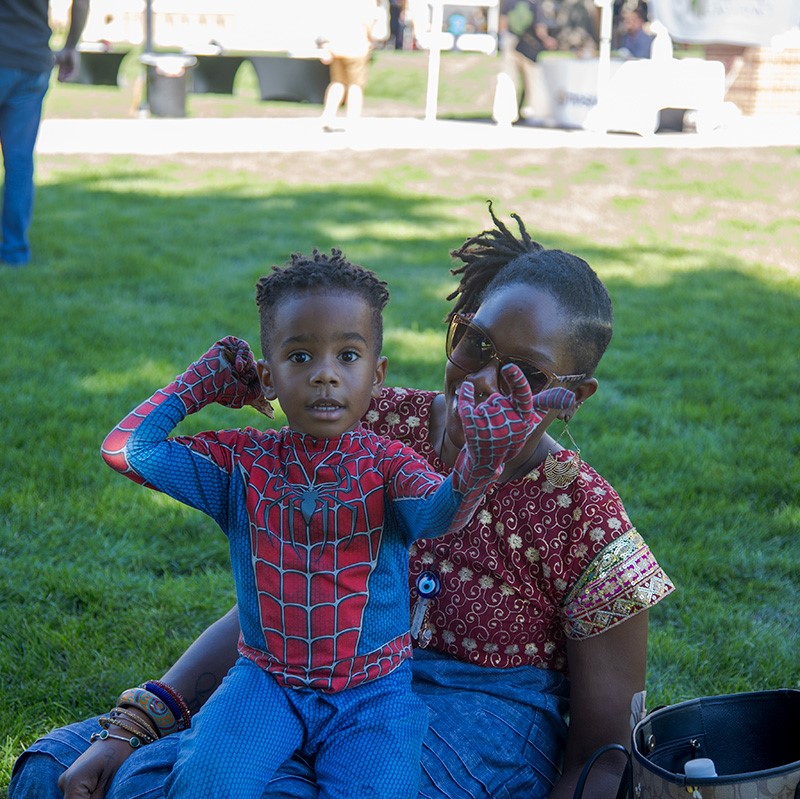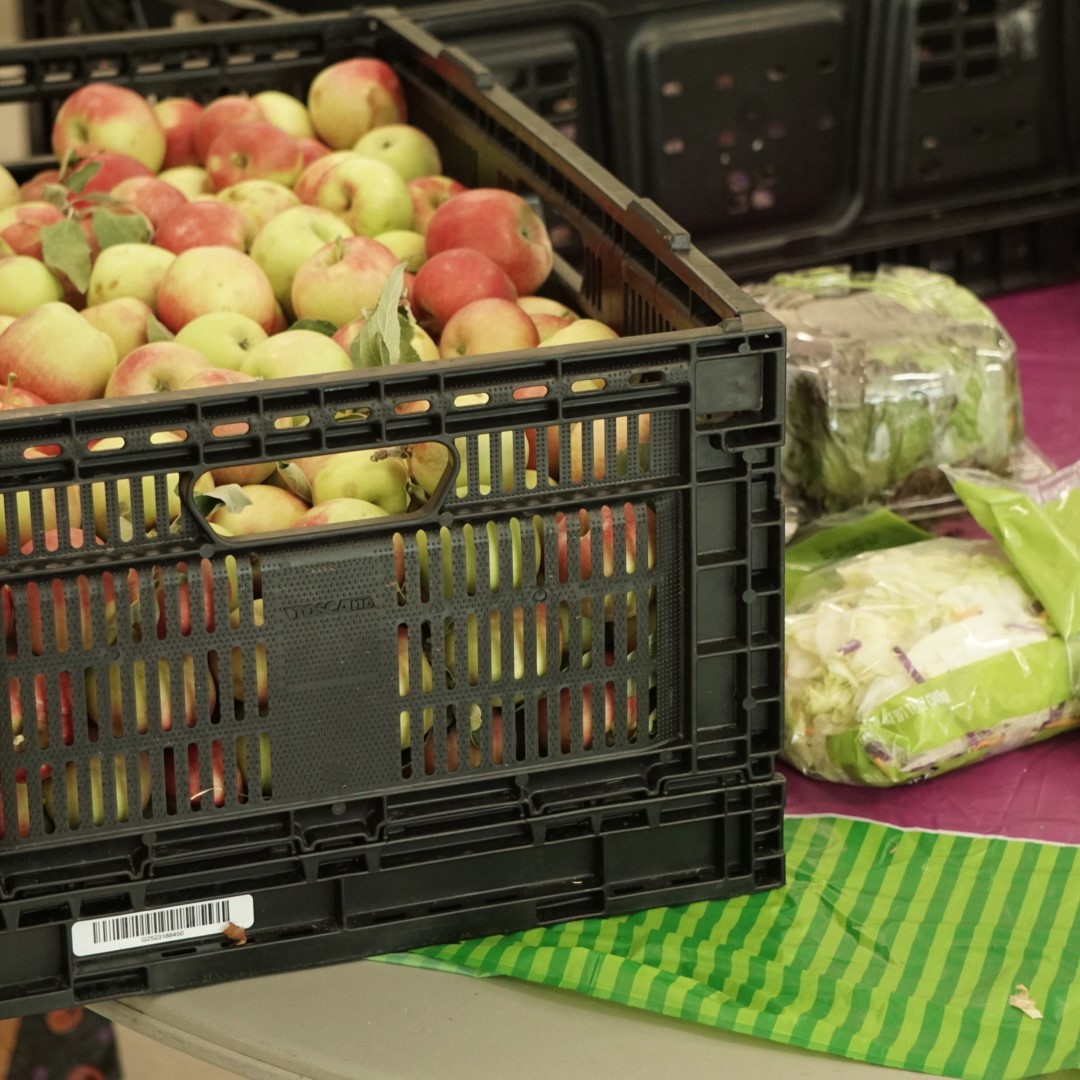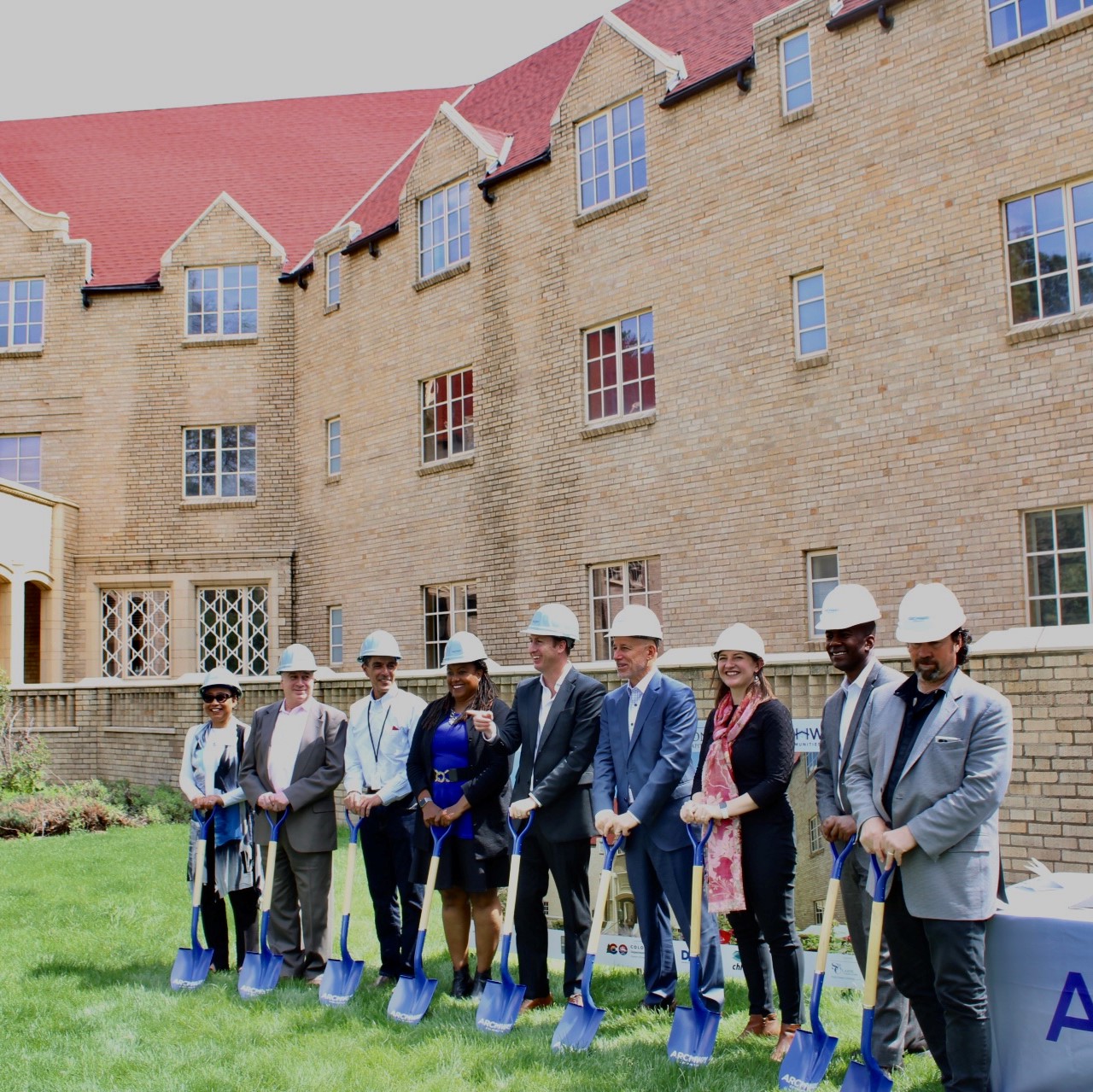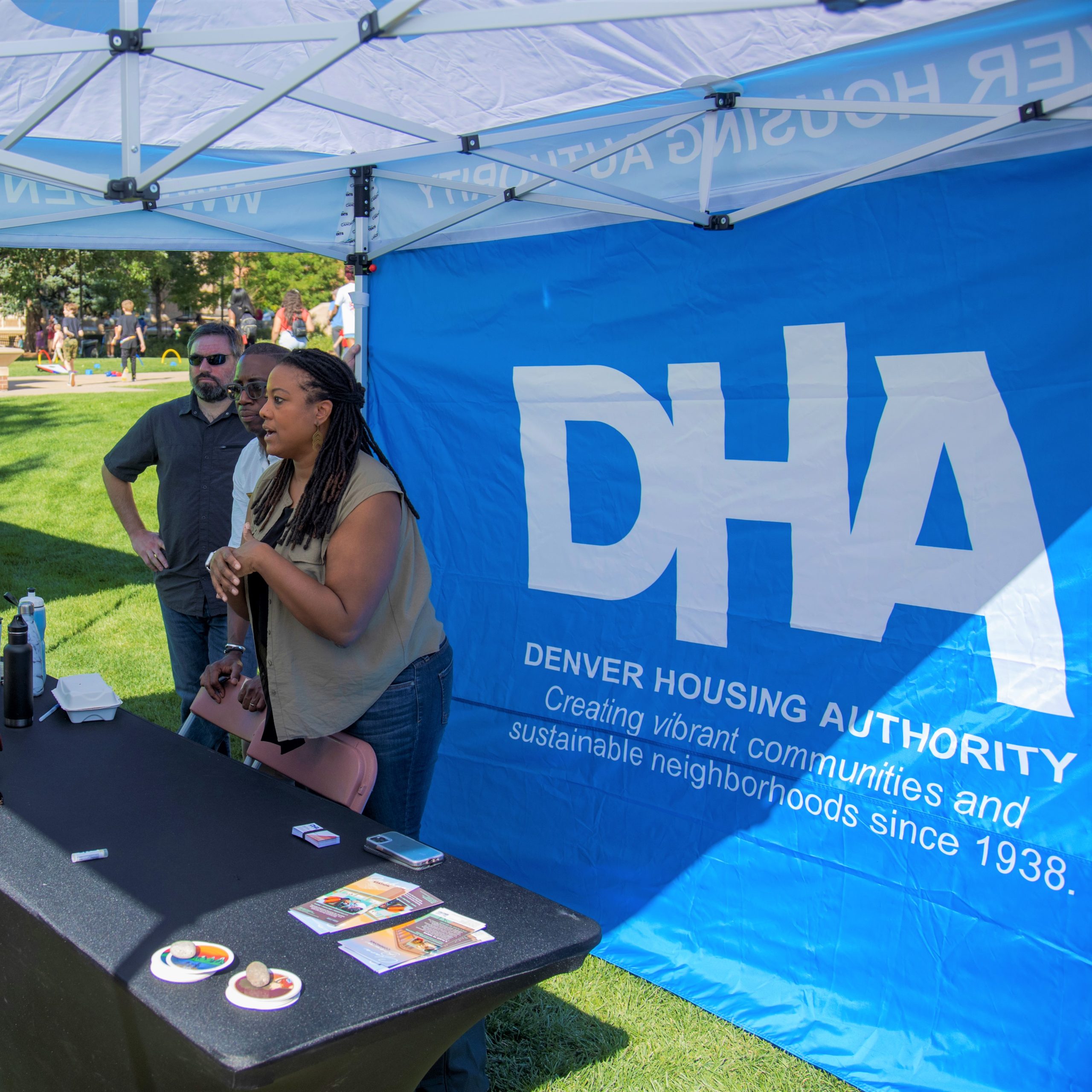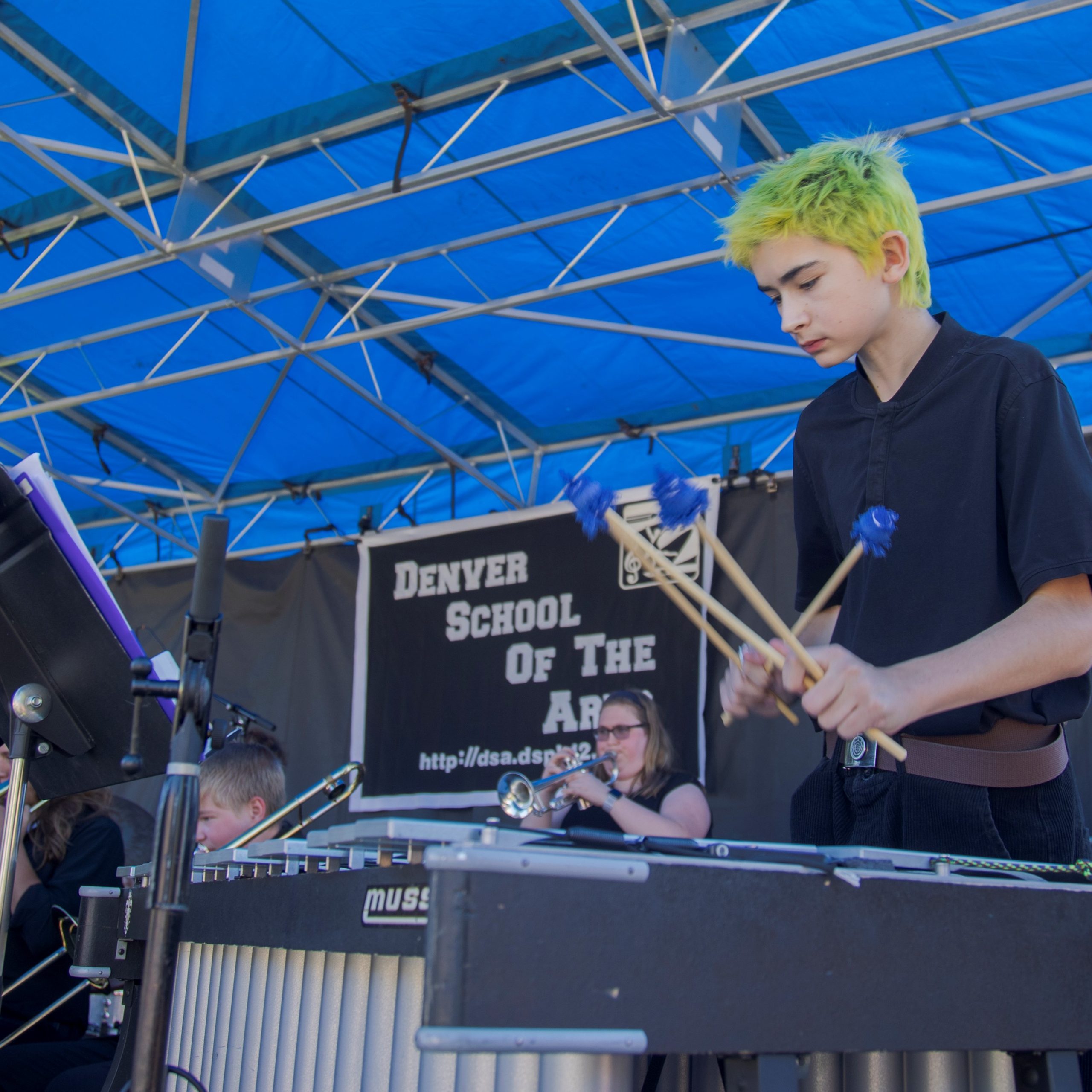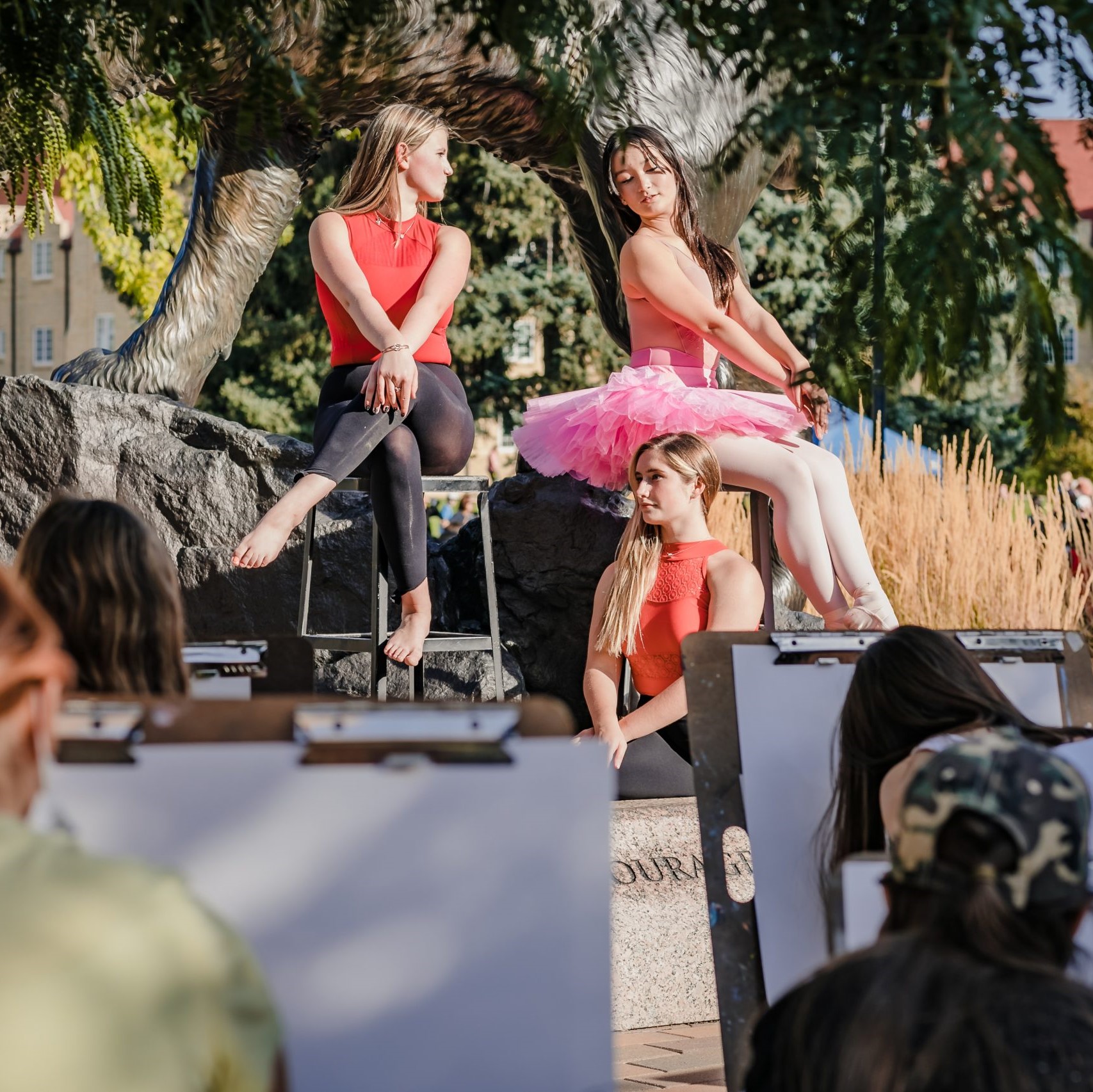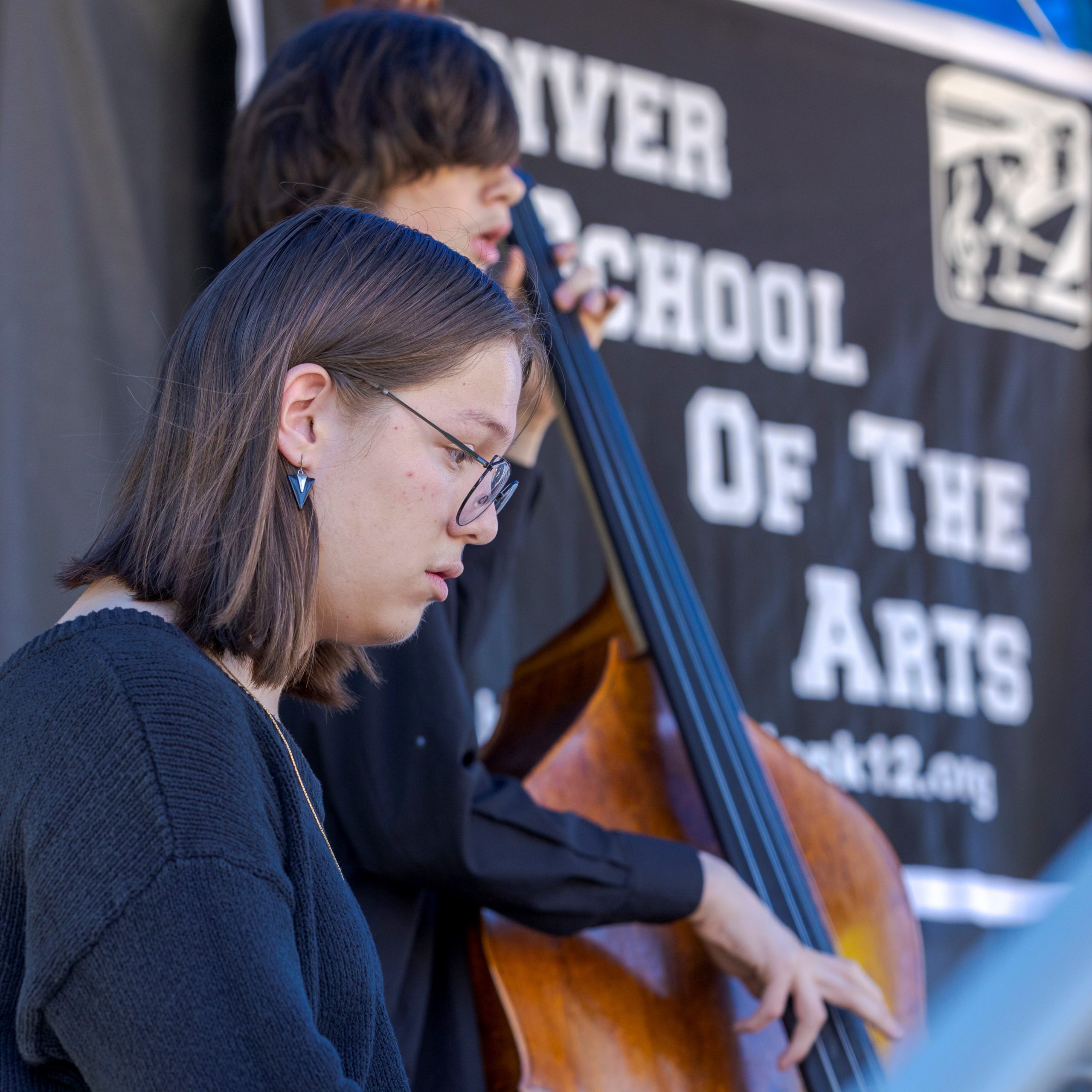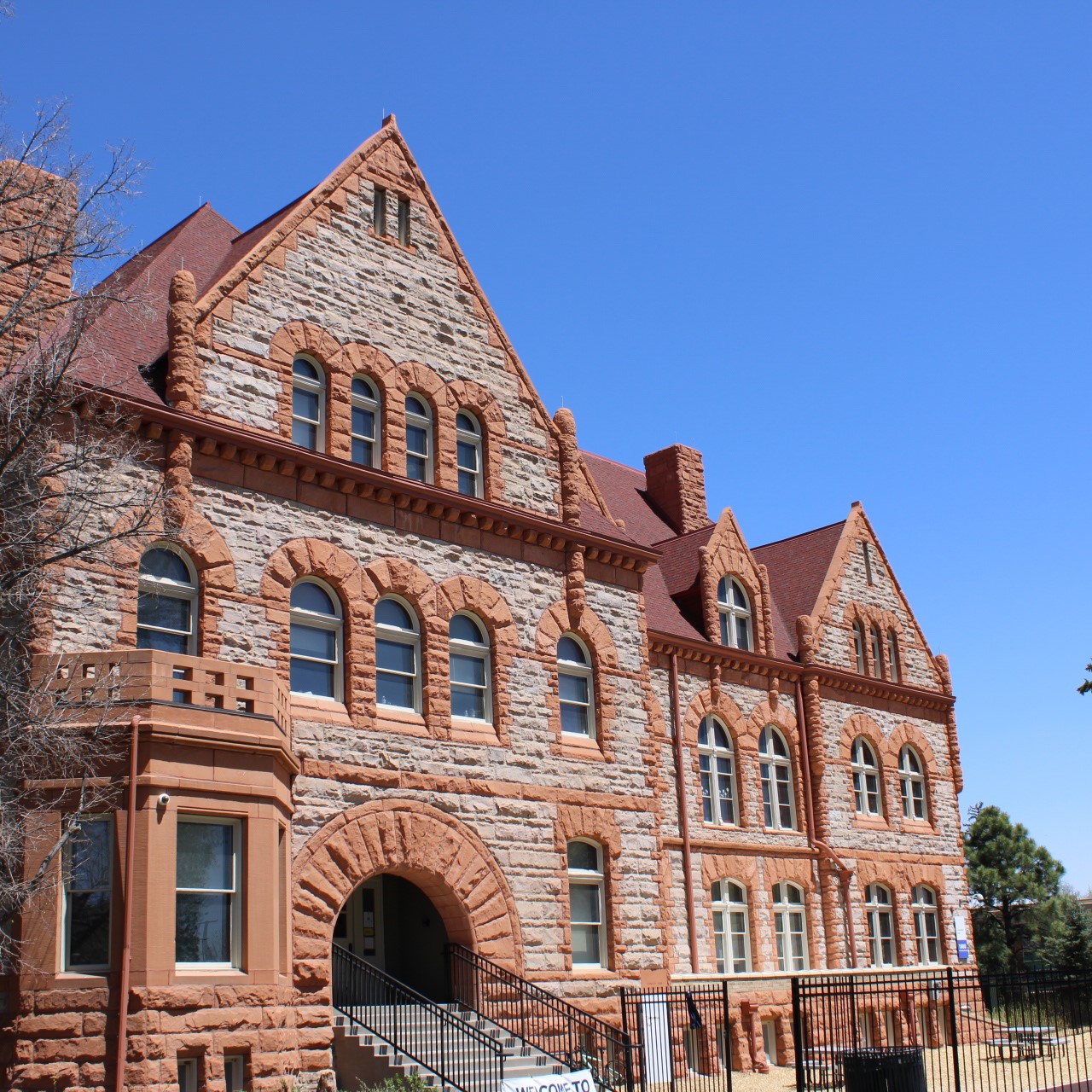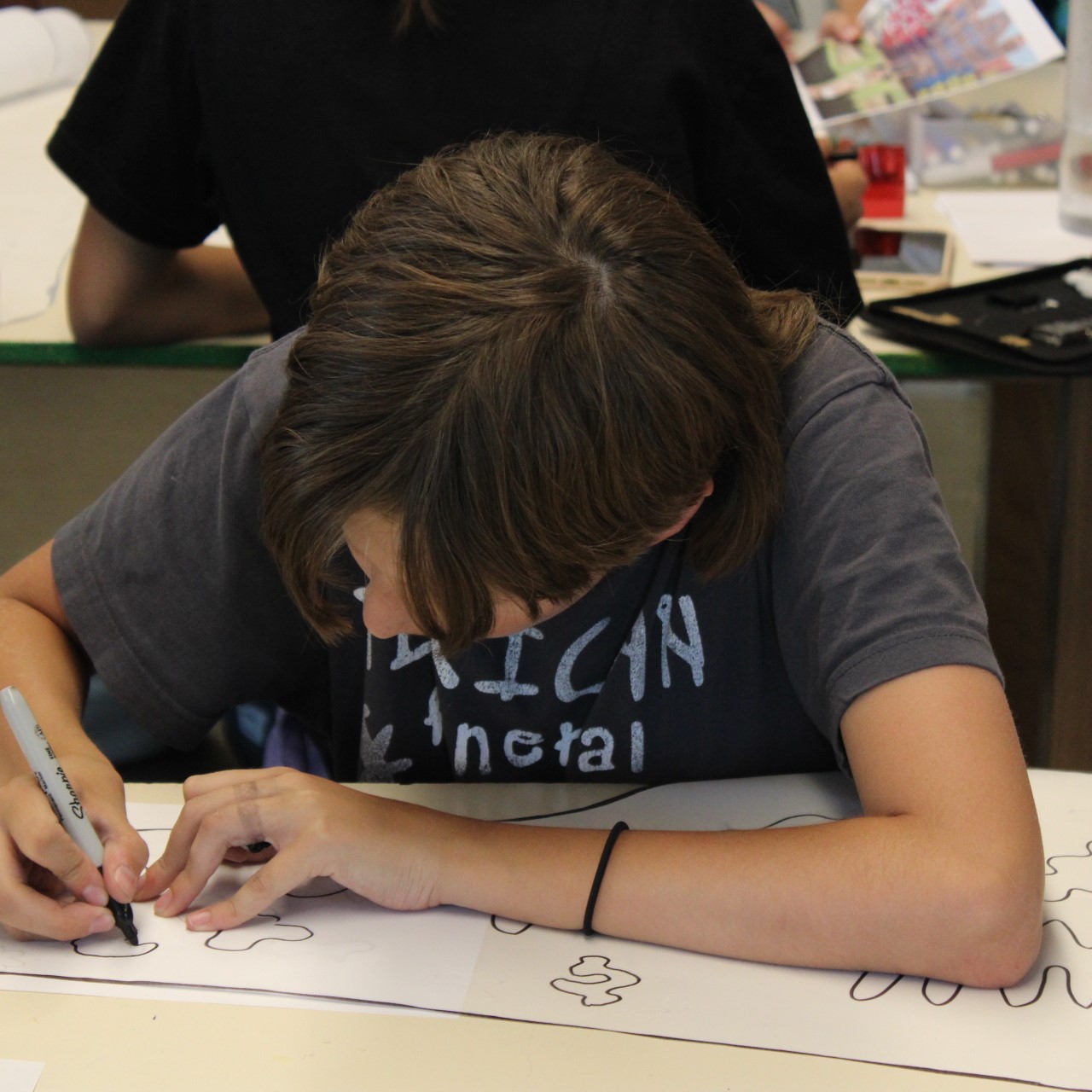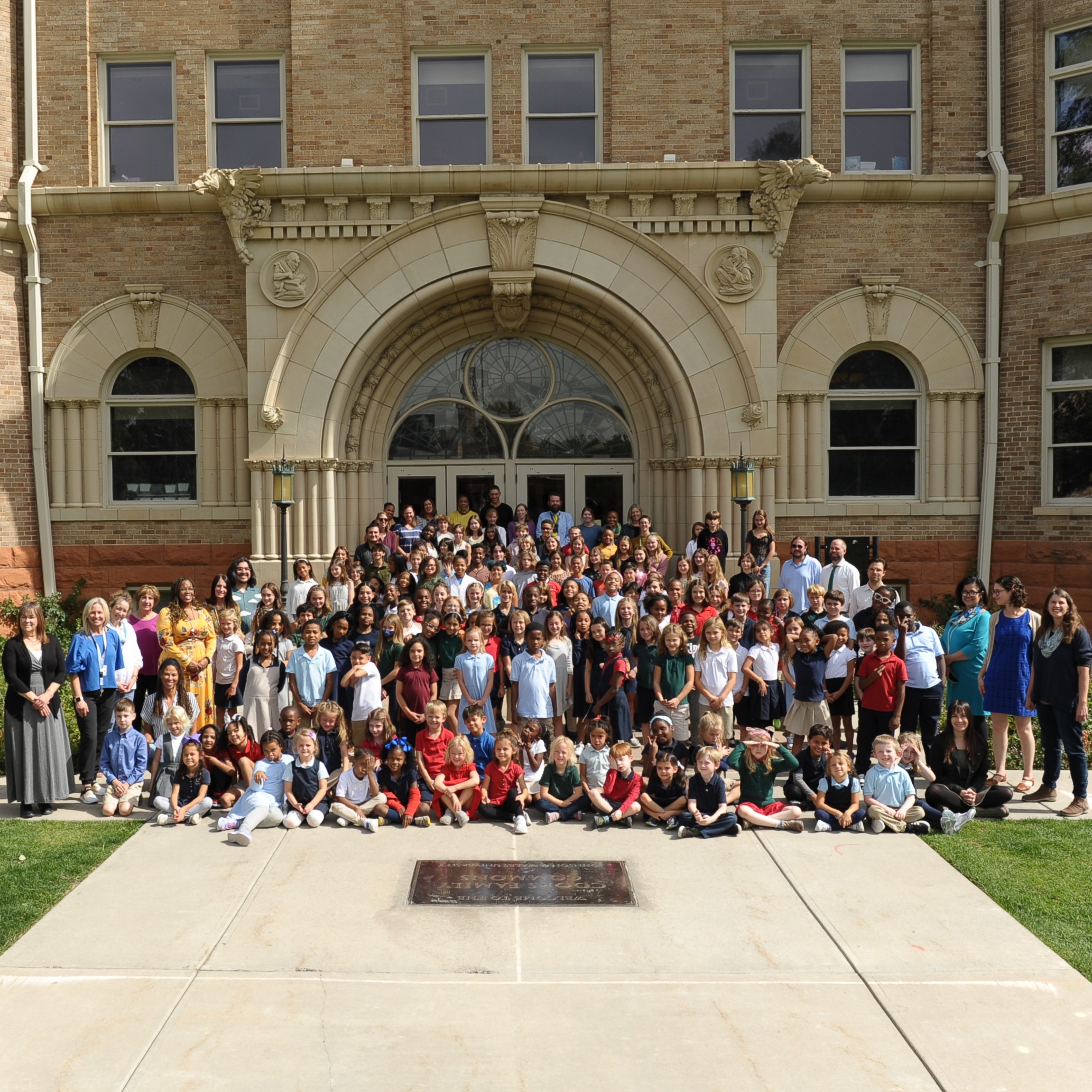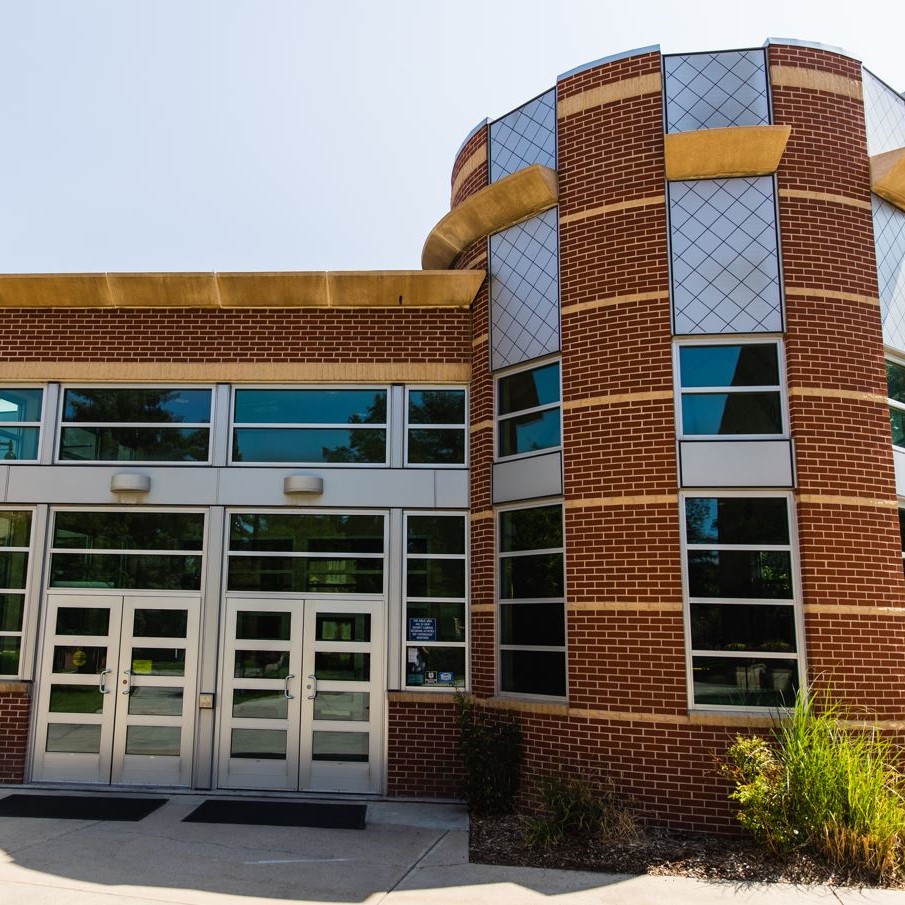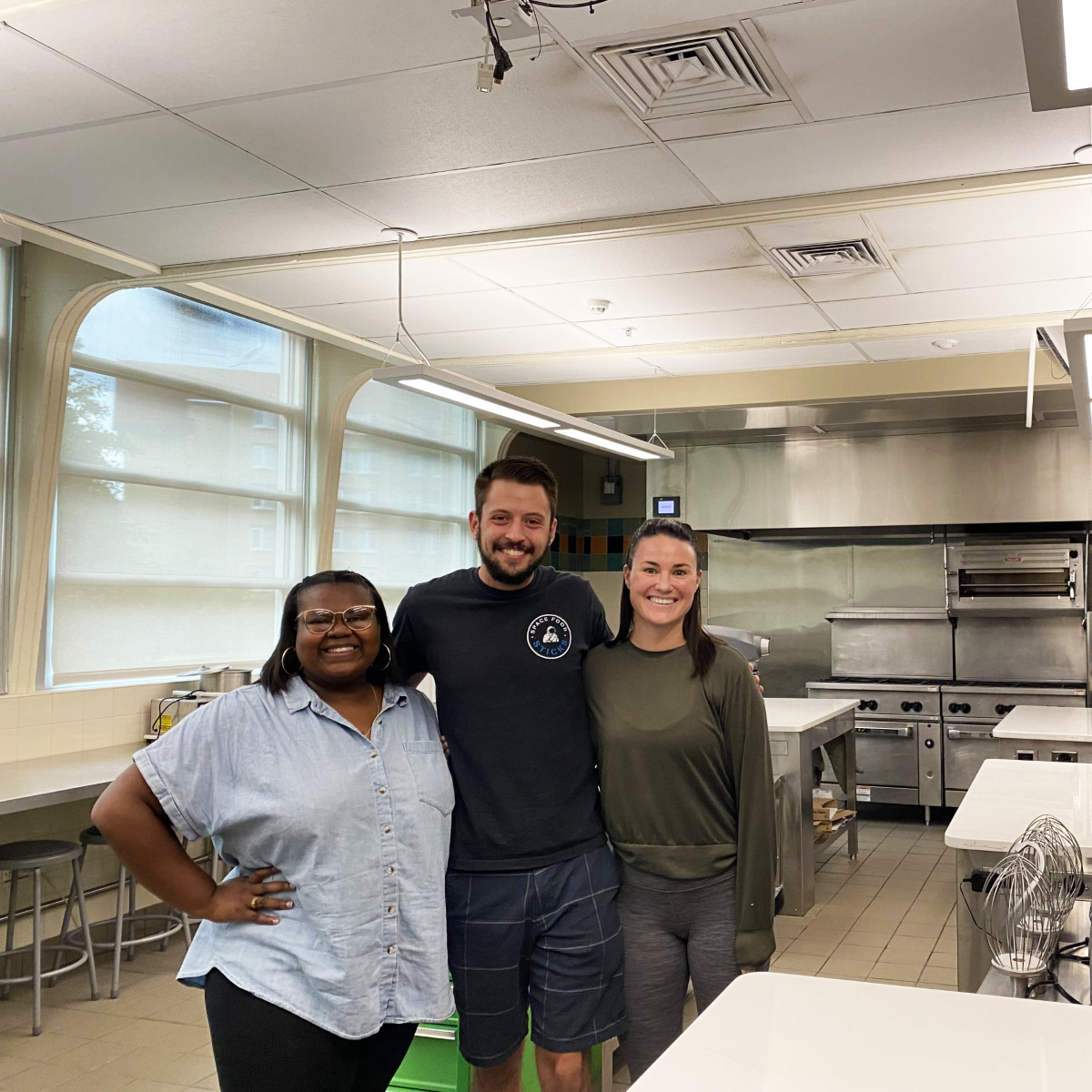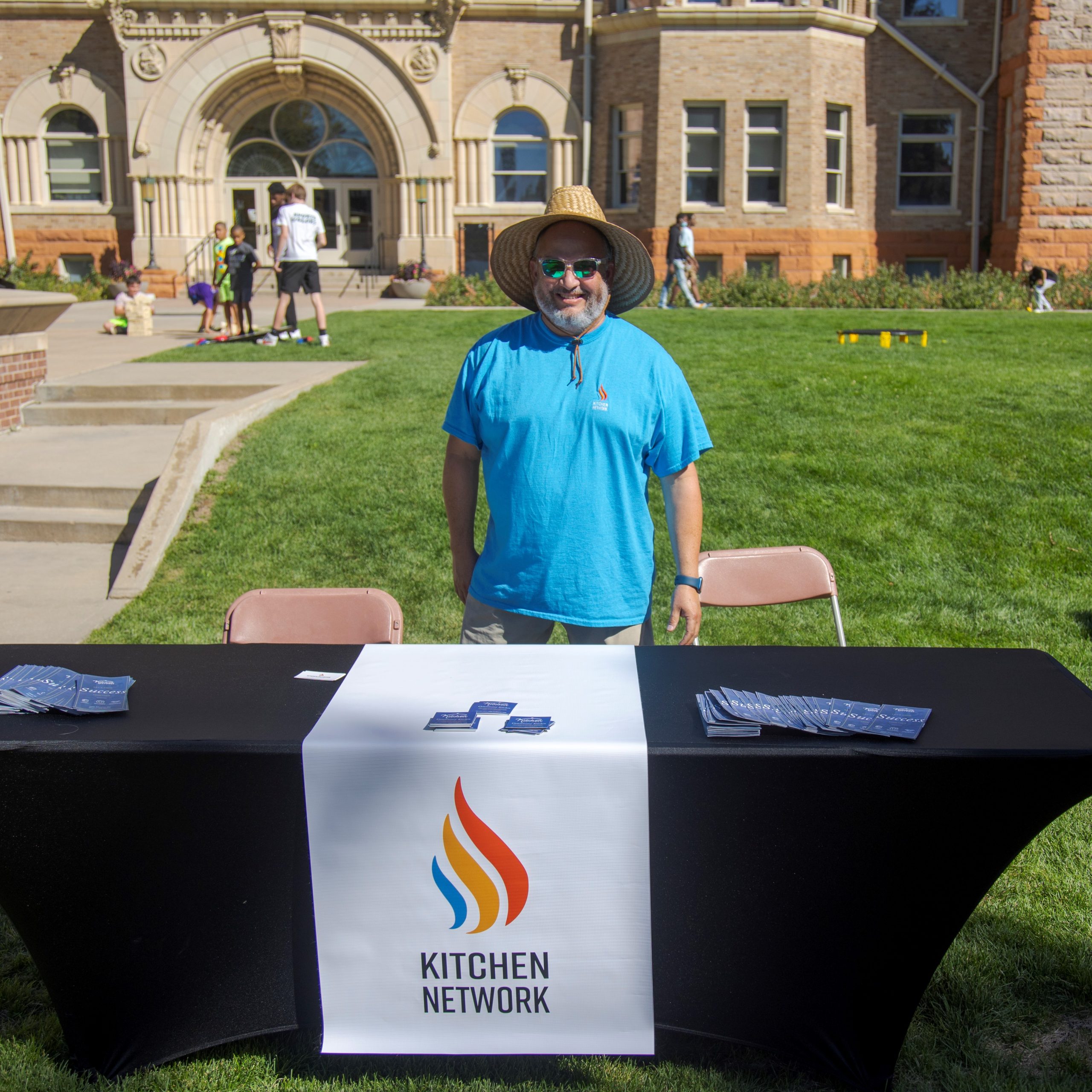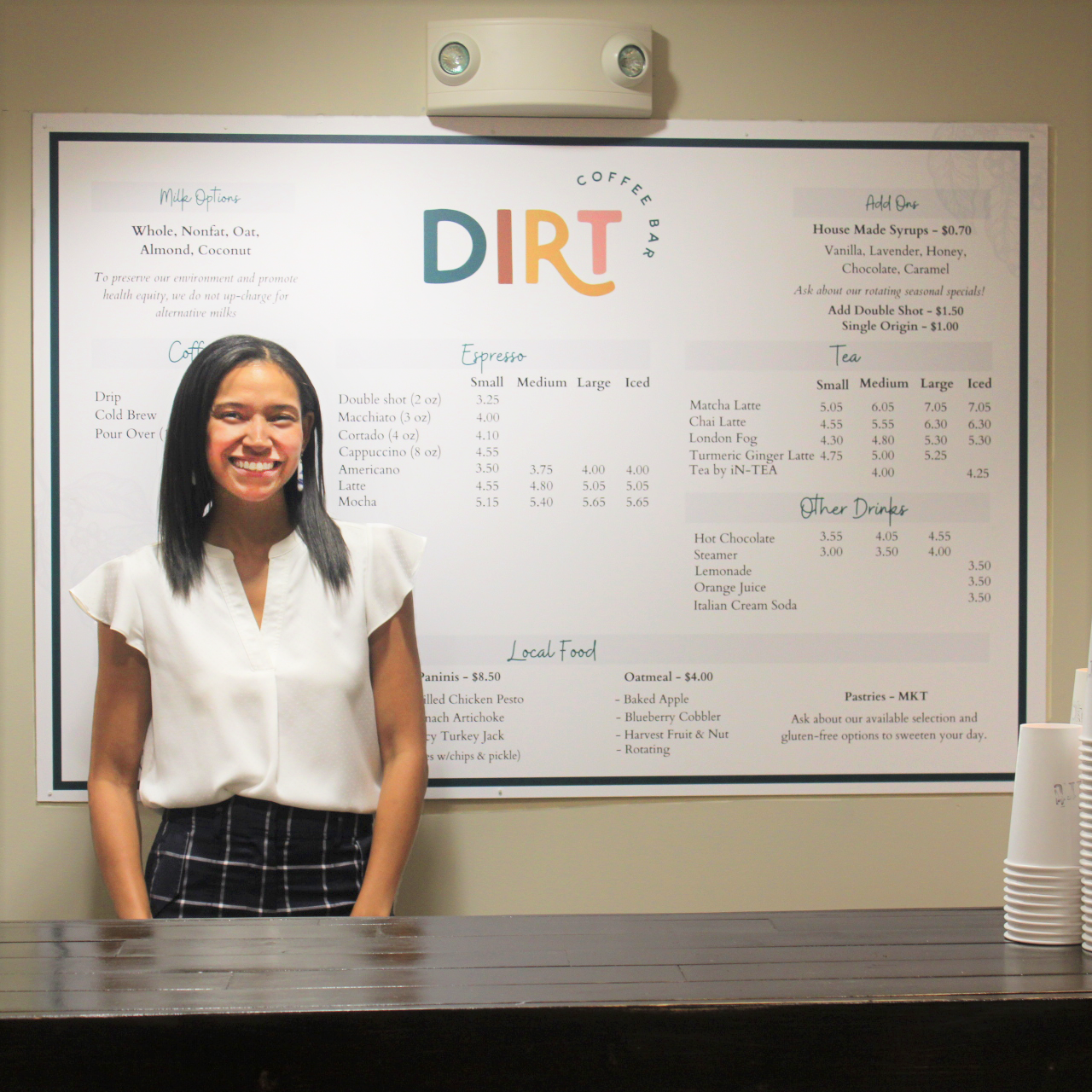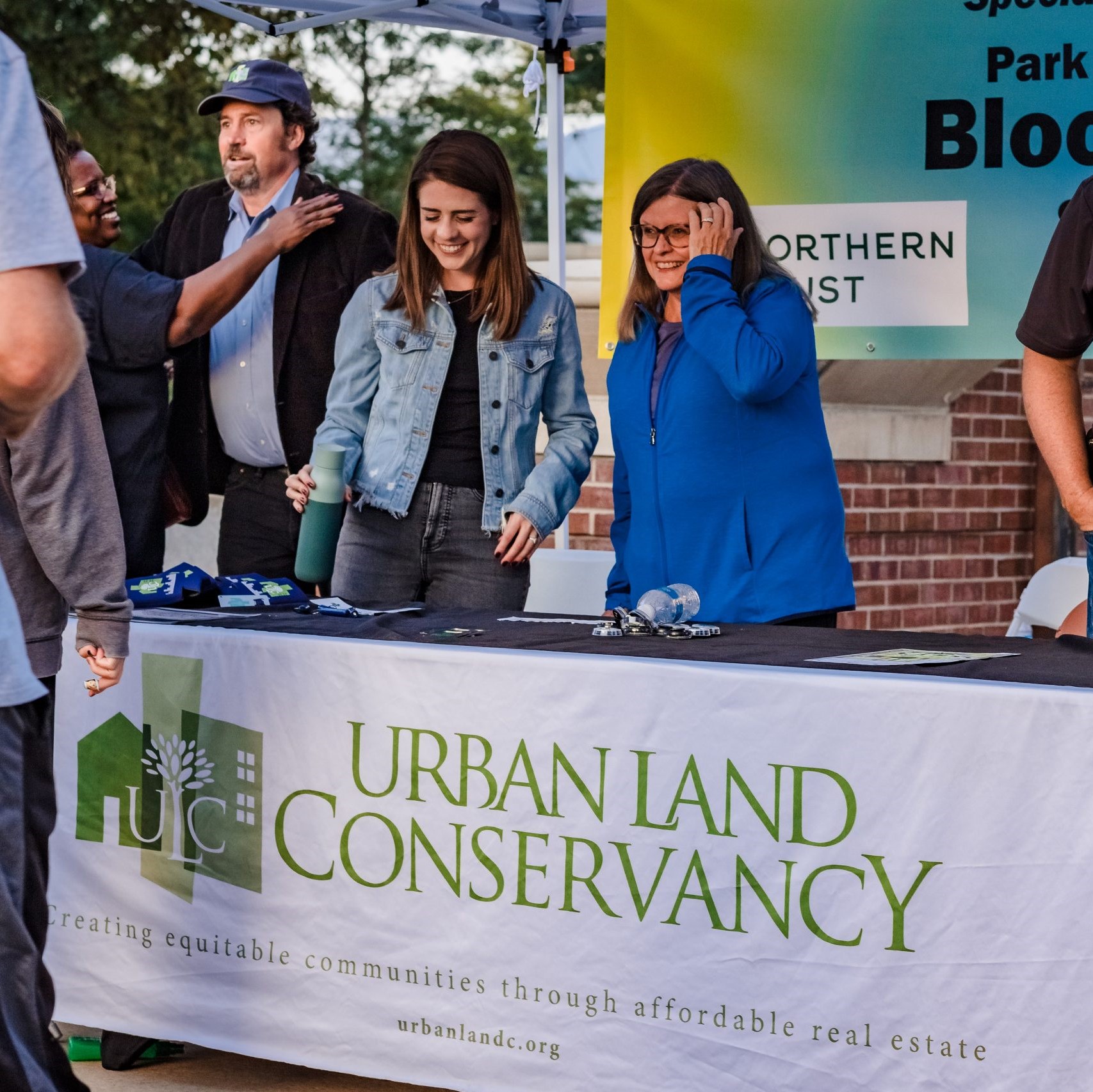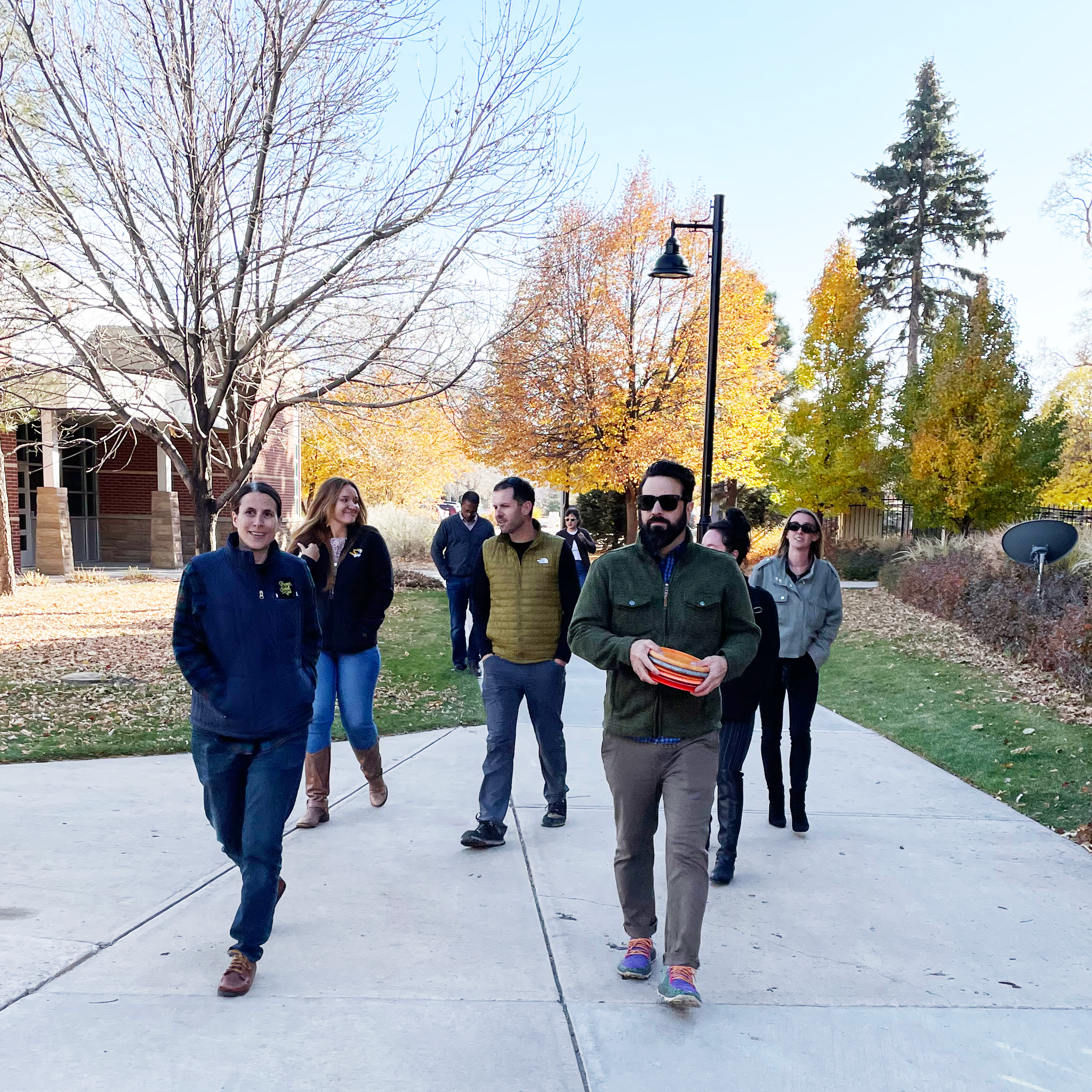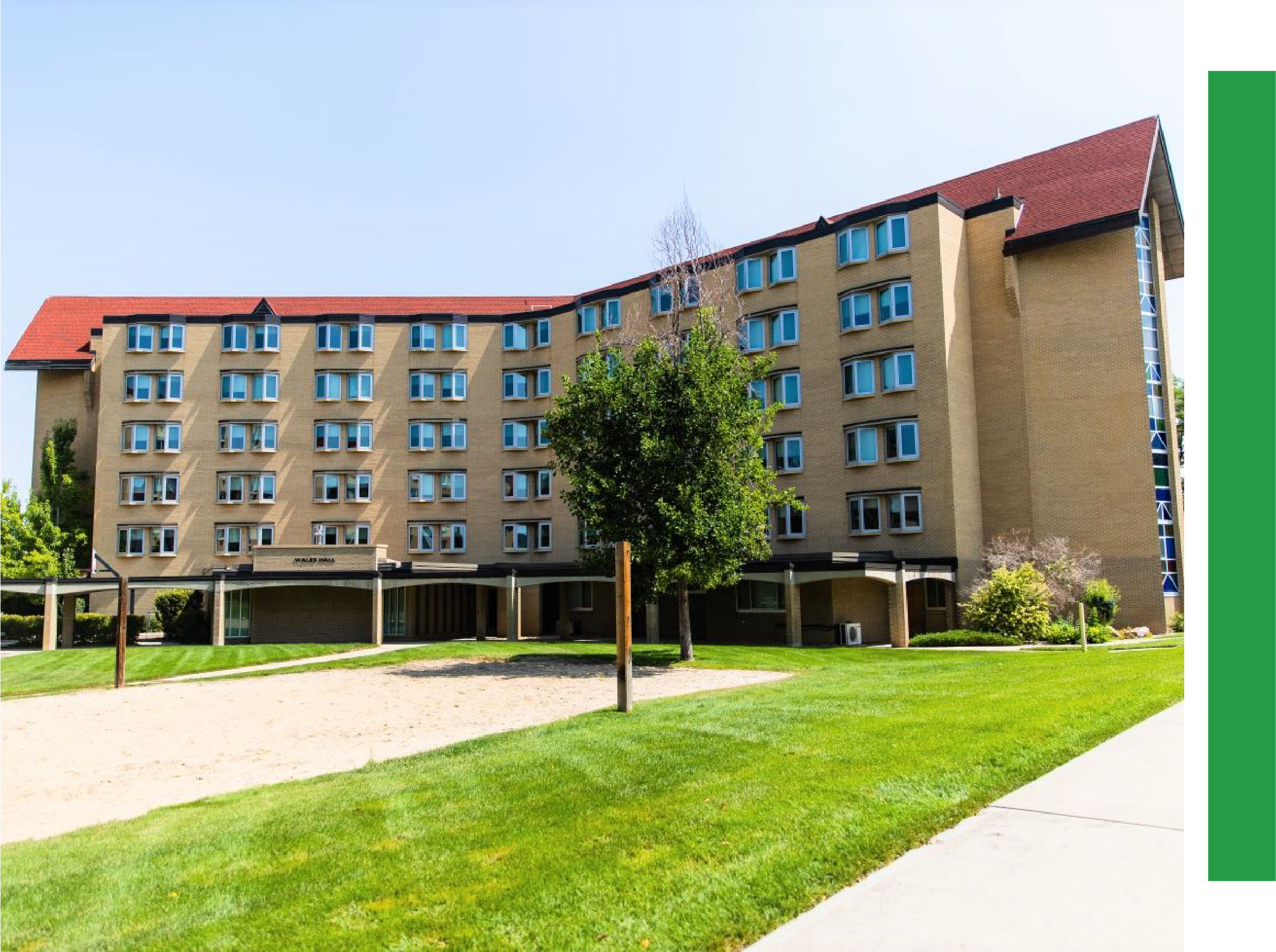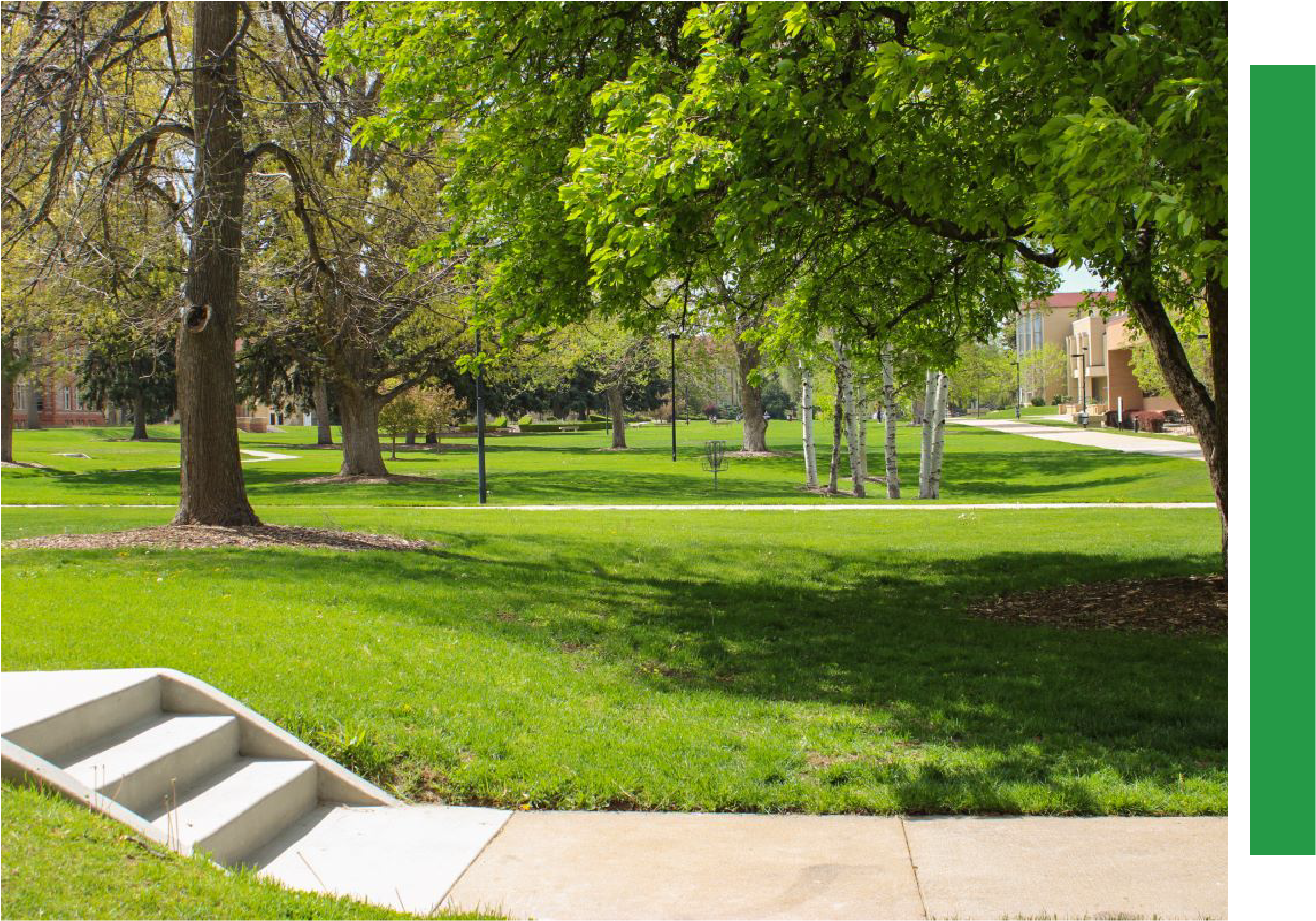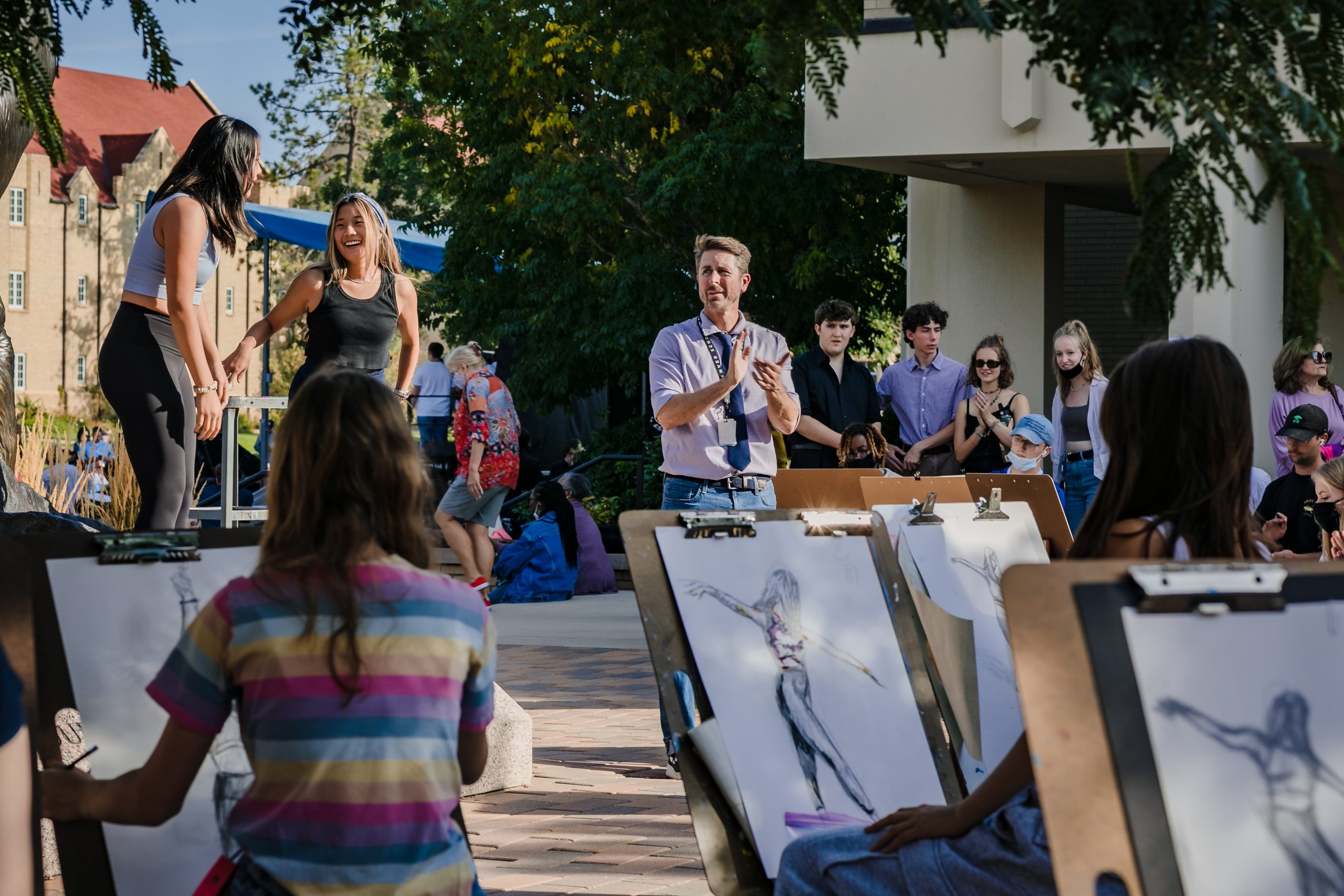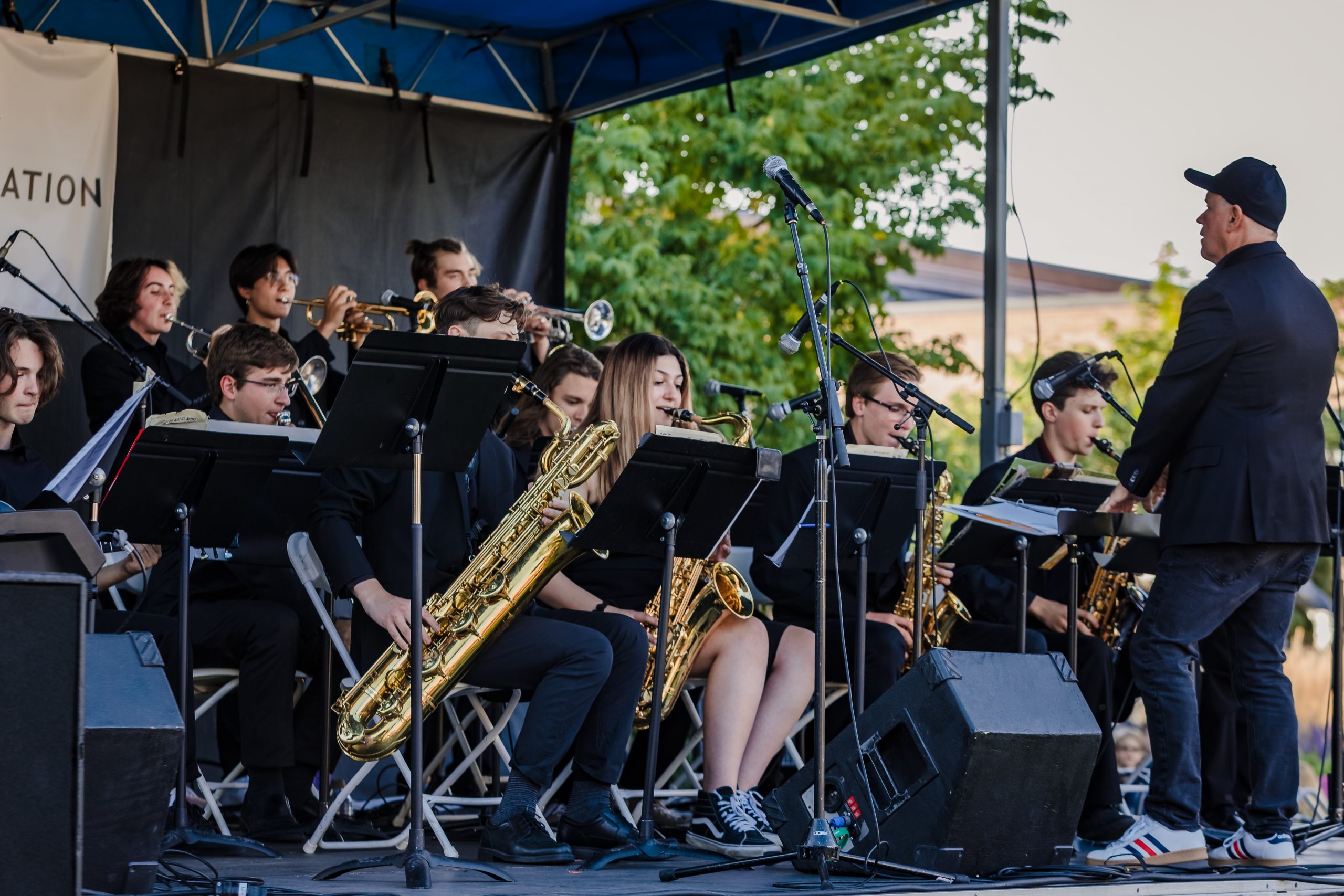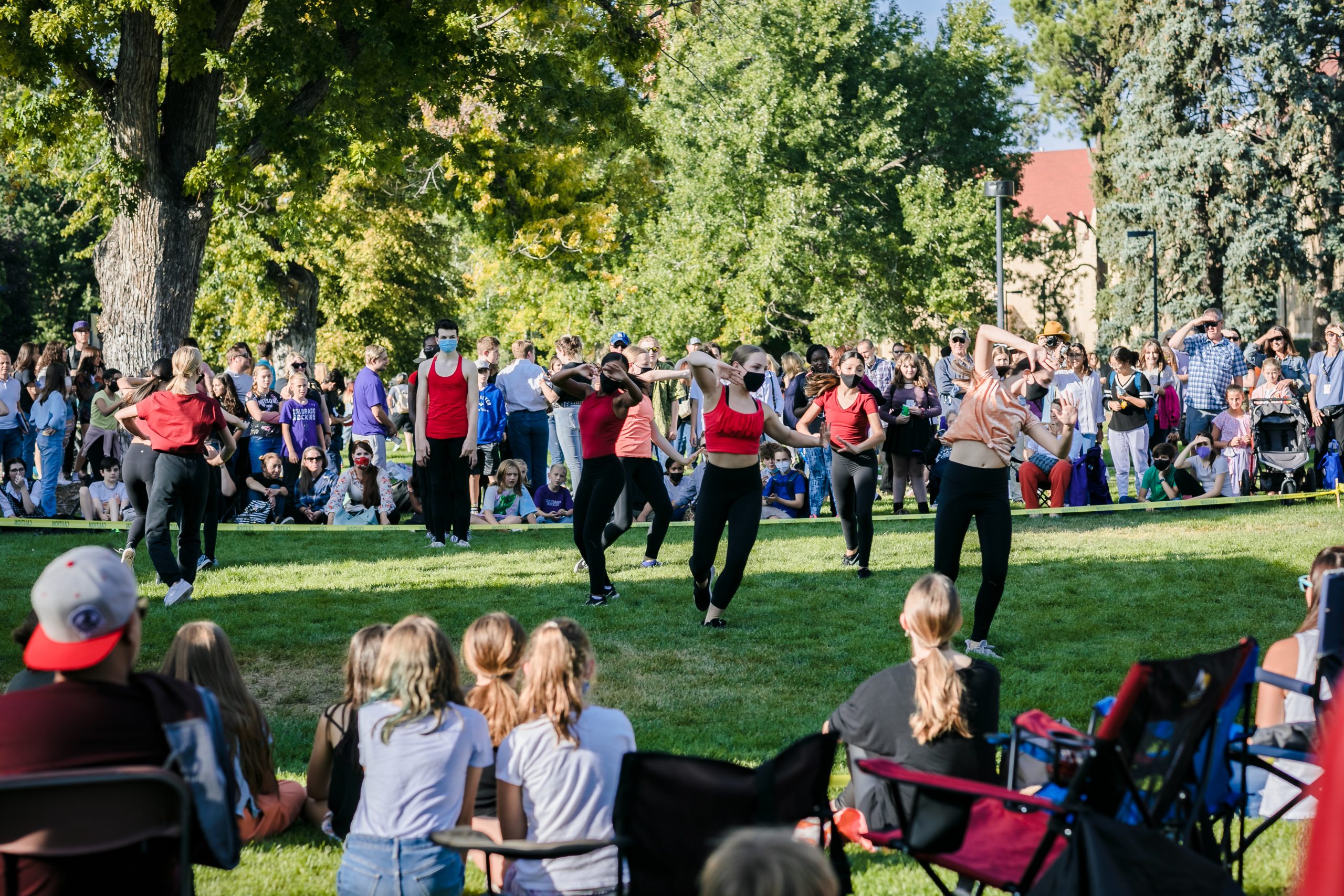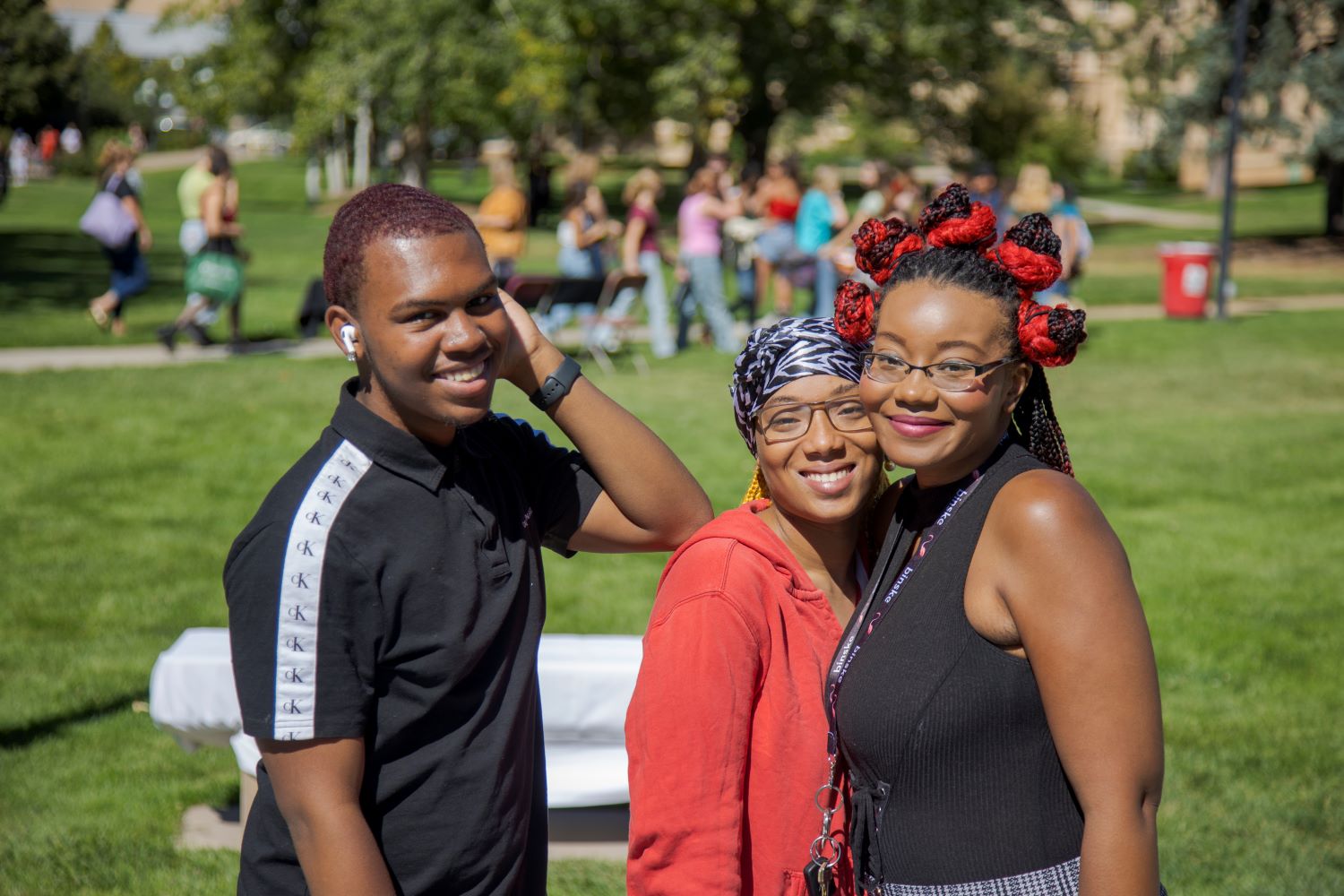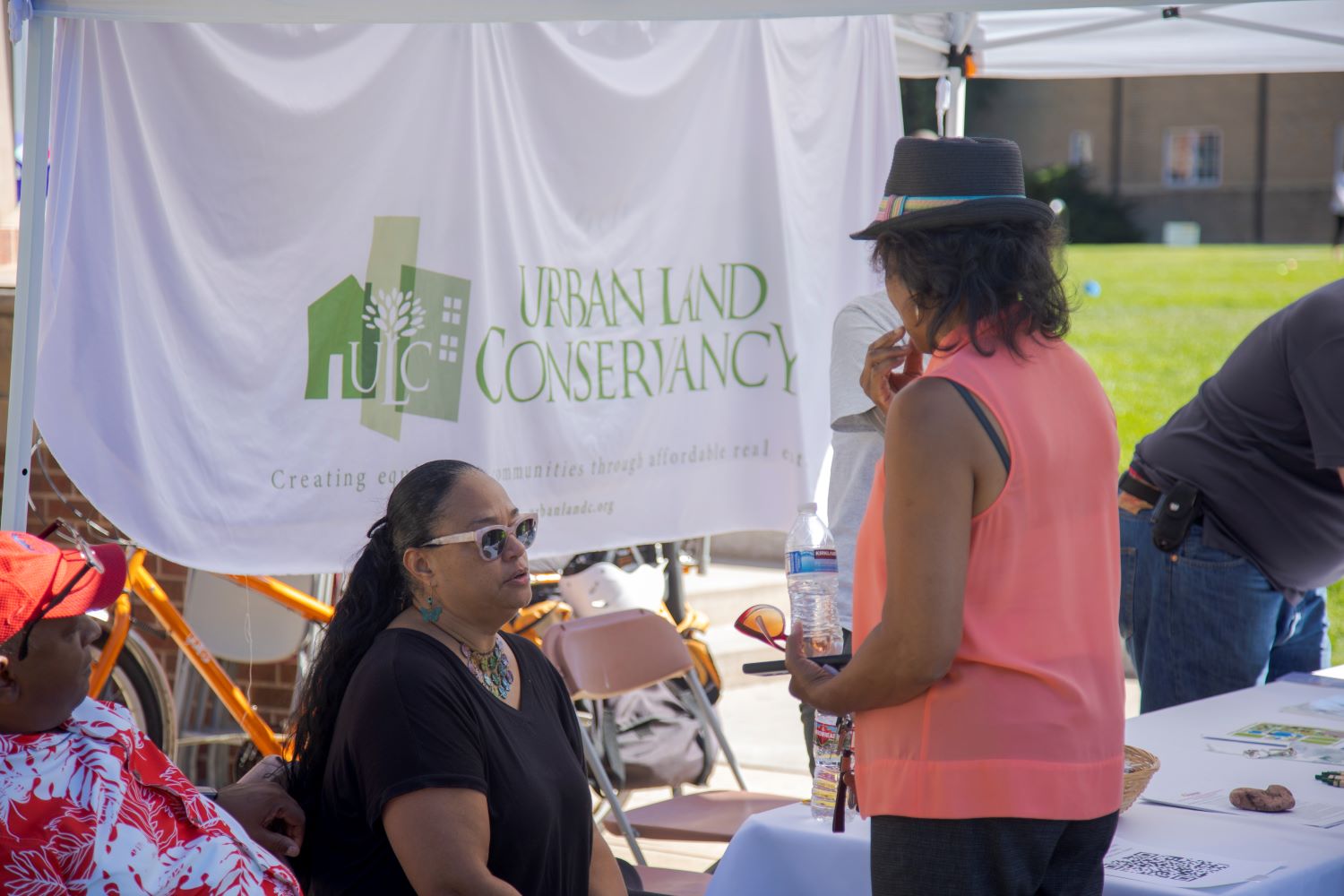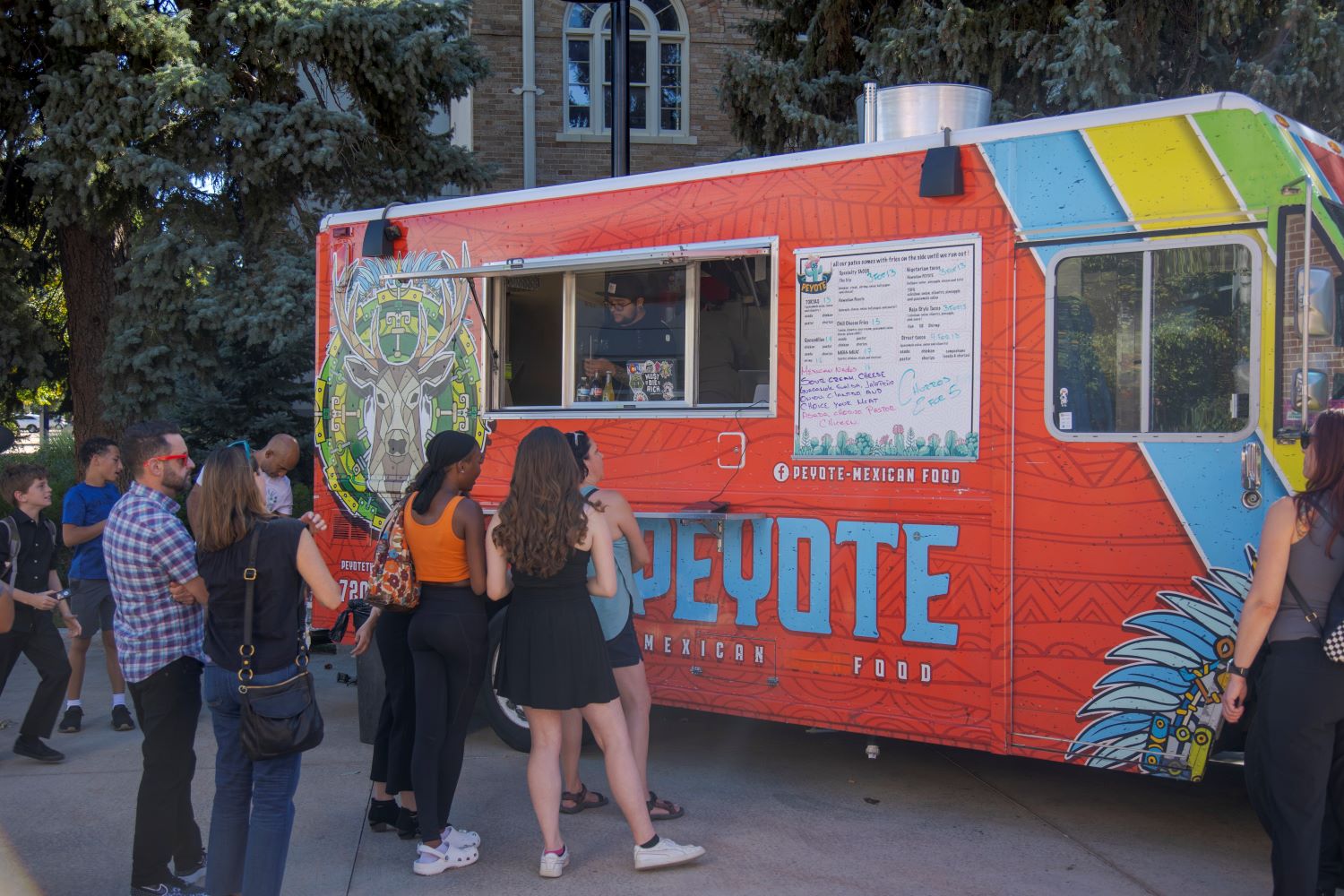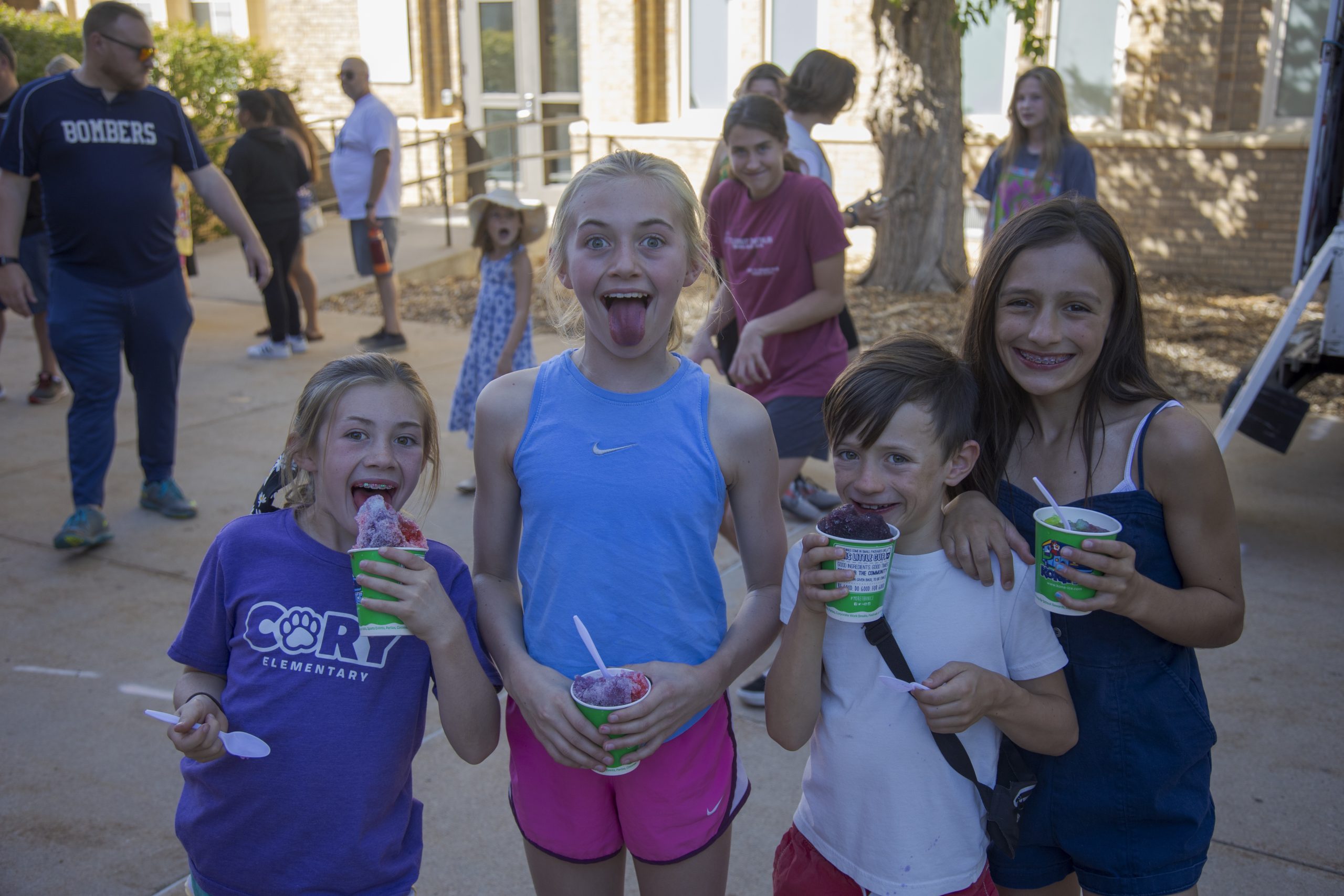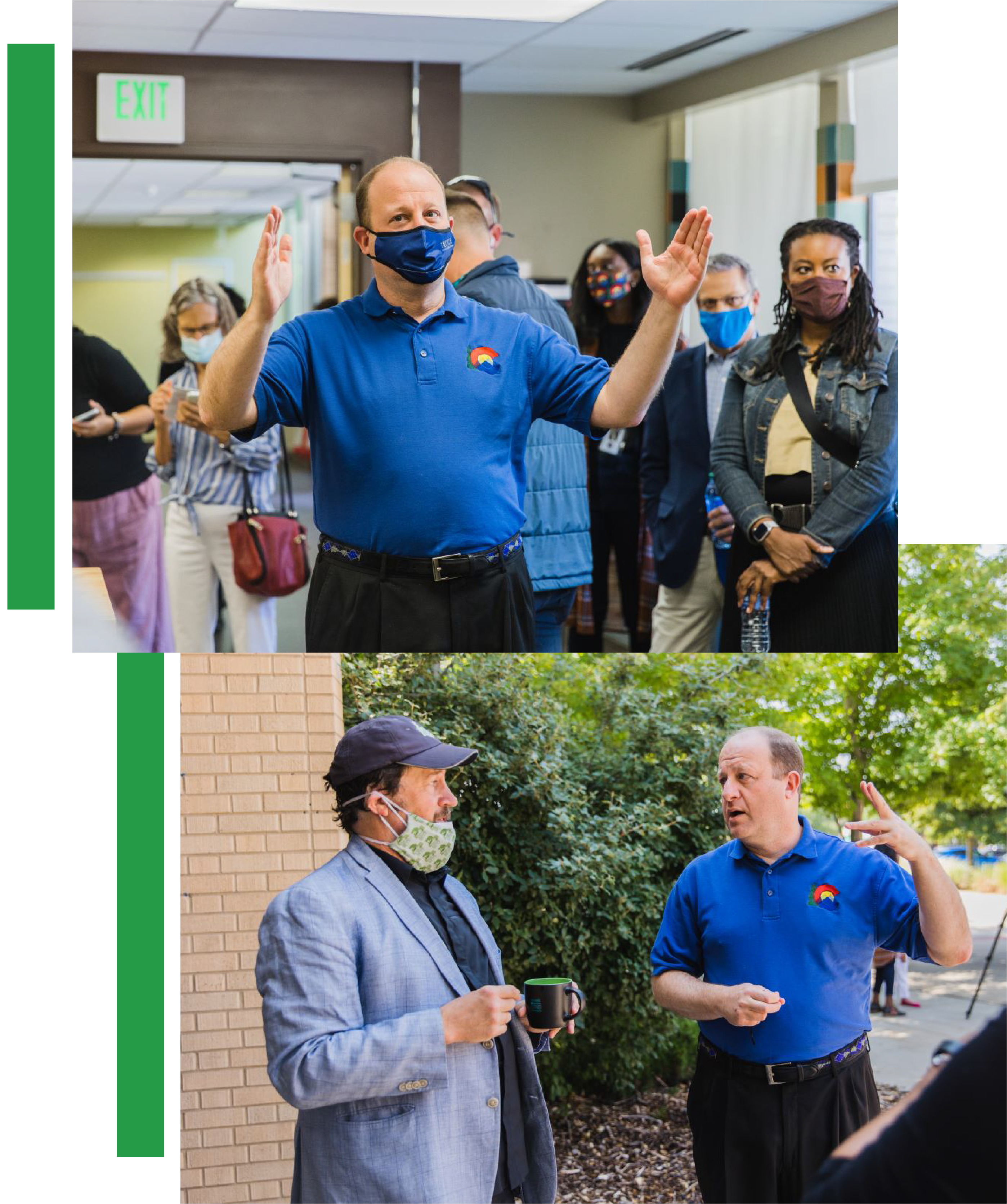
I. The Land
When Europeans came to the land that is now Denver in the mid 1800’s, it was Arapahoe territory. Sand Creek runs through East Denver, near the current location of Mosaic Community Campus, and down into the plains of Southeast Colorado, where the tragic Sand Creek Massacre was perpetrated by white settlers against a peaceful encampment of Cheyenne and Arapaho Native Americans. The encampment was mostly made up of women, children, and elderly people.
On November 29, 1864, American soldiers under the command of Colonel Chivington murdered 230 Cheyenne and Arapahoe people in this encampment in a scene that even fellow soldiers thought was disgusting, cowardly, and horrific. Denver was built on the ancestral land of these tribes, and we cannot forget either their past and ongoing contribution to the landscape, or their treatment at the hands of white settlers.


This campus resides in Denver’s thriving Park Hill neighborhood, although at the time the campus was built, Park Hill consisted of only one housing development, and the rest of the land was expansive plains and farmland. Over the next century, Park Hill grew into a bustling neighborhood with shaded boulevards, restaurants, stores and parks, and expanded to include North Park Hill and Northeast Park Hill.
After World War II, many Black families moved to Park Hill, and it became a national example of a racially integrated neighborhood. There is little information about the integration of the Colorado Women’s College, although we know that a woman named Henrietta Dove became the first Black student at Colorado Women’s College in 1951, three years before Brown v. Board of Education outlawed segregation in schools. Like much of Denver, gentrification has been heavily impacting the neighborhood since the 1990’s, which has driven up housing costs and displaced long-time residents. Urban Land Conservancy has a long history of working with the Park Hill Community; you can view ULC’s other properties in Park Hill here.
II. Colorado Women’s College (CWC)
1890-1982
In the 1880’s, less than 20 years after the Sand Creek Massacre, Denver’s population was growing quickly. Baptist Reverend Robert Cameron saw a need for an institute of higher education for the women of Colorado. He wanted to create what he called “The Vassar of the West” in the Denver area. In 1890, after the project was approved by the Rocky Mountain Baptist Association, construction began on a 20-acre site on the plains east of Denver. Treat Hall, the first and only building at this time, was designed by Frank H. Jackson and Betts in the Richardsonian Romanesque style.
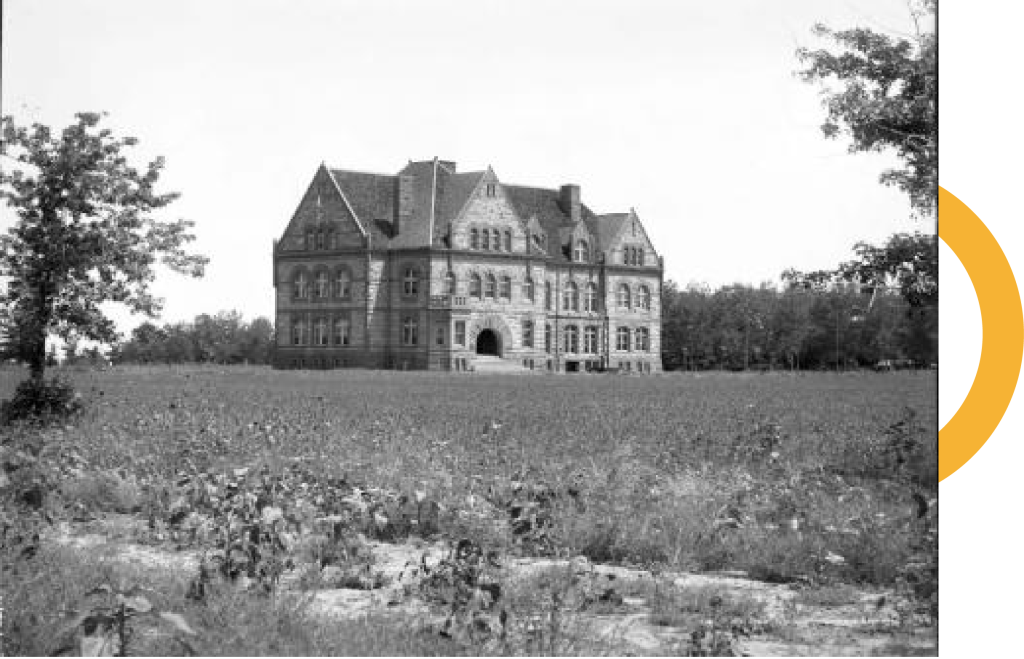
An economic downturn in the mid 1890’s and a lack of funding meant that the college did not accept its first class of students until September of 1909. That year, 59 women made up the first class of the college, which grew to 178 students by 1914, as more and more young women were drawn to the Colorado sunshine to take courses in home and family, algebra, Latin, English, psychology, as well as to play sports, learn instruments, and otherwise socialize with other young women.
Due to increasing enrollment over the years, the campus kept expanding. Additions included:
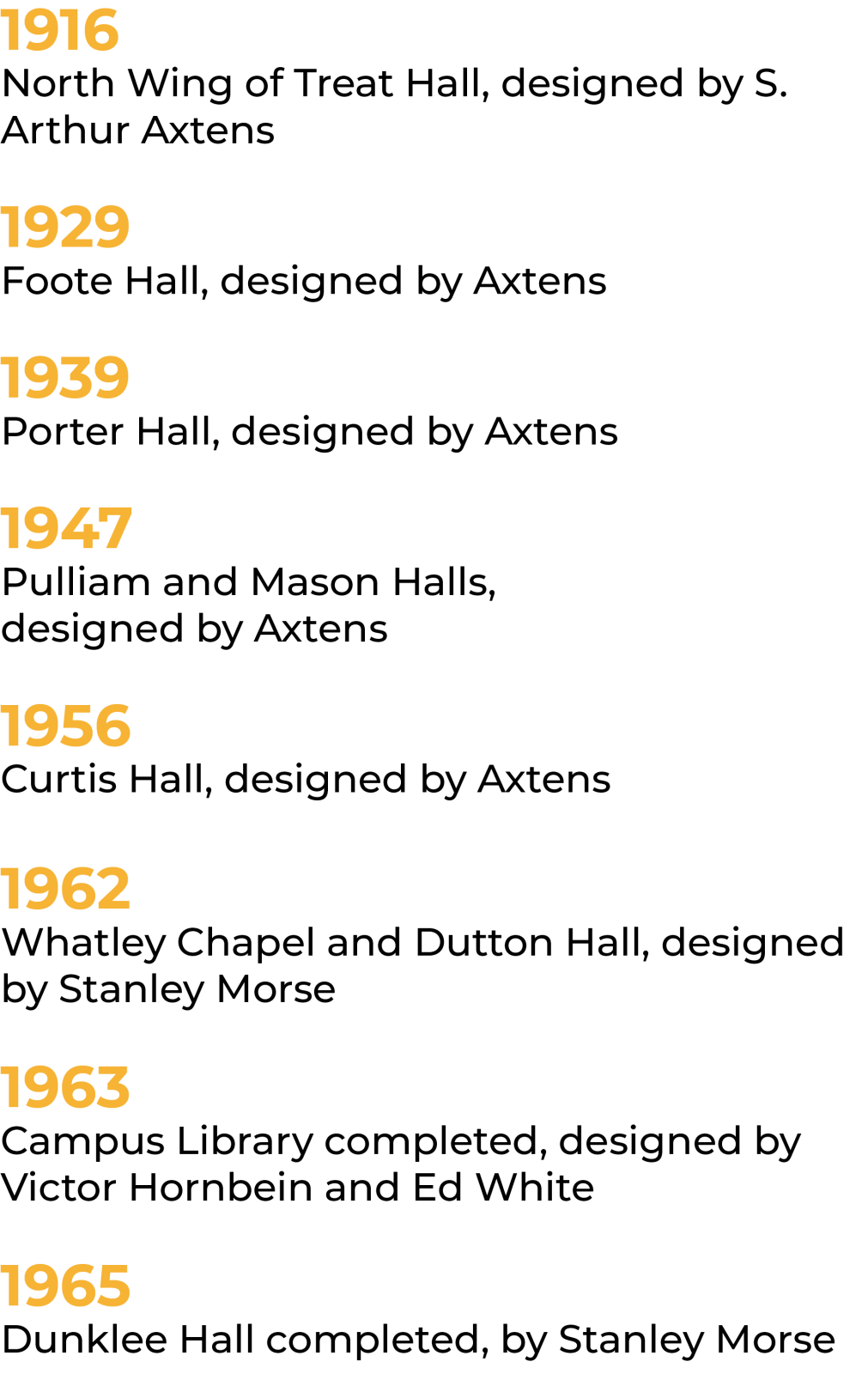




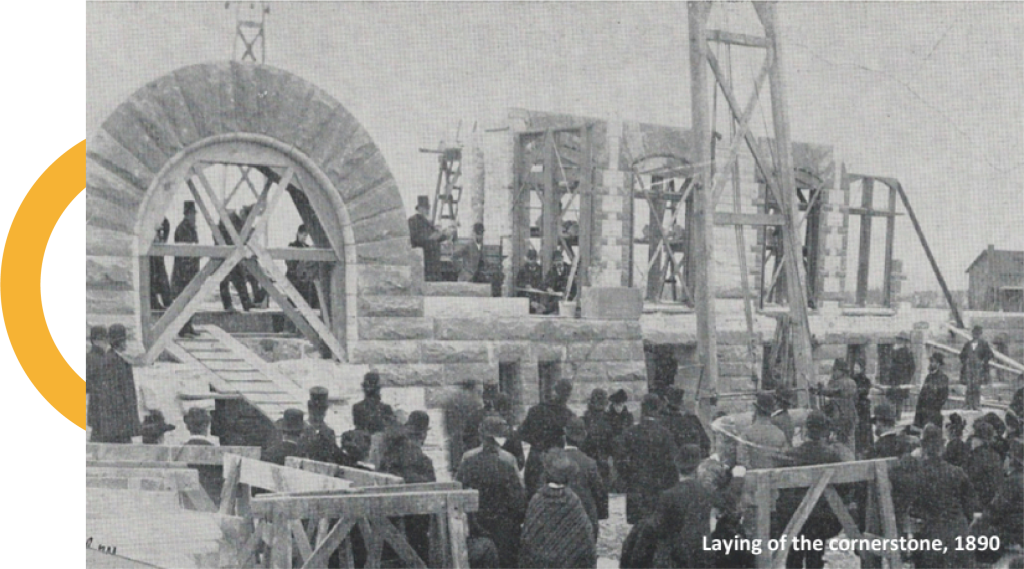
At the time, only three other states—New York, Massachusetts, and New Hampshire— had colleges that were comparable to the new campus being built in Denver (Vassar, Wellesley, and Smith, respectively).
The Denver Evening Times reported of the new college:
However, by 1972, the college’s enrollment was falling and it was facing financial issues. Temple Buell ceased his financial support and the college was renamed back to Colorado Women’s College.
Staff, alumni, students, and community members campaigned for years to solve CWC’s financial problems, but eventually it became clear that CWC could not continue as an independent institution.

III. University of Denver
1982-2000
In 1981, the leaders of Colorado Women’s College made the decision to merge the college with University of Denver (DU). DU accepted all of CWC’s existing students and established programs for women on its main campus in order to “carry forward Colorado Women’s College in a reorganized format”.
DU utilized the campus in Park Hill to support its graduate programs, including Sturm College of Law, which provided classes on the campus from 1982-2000.

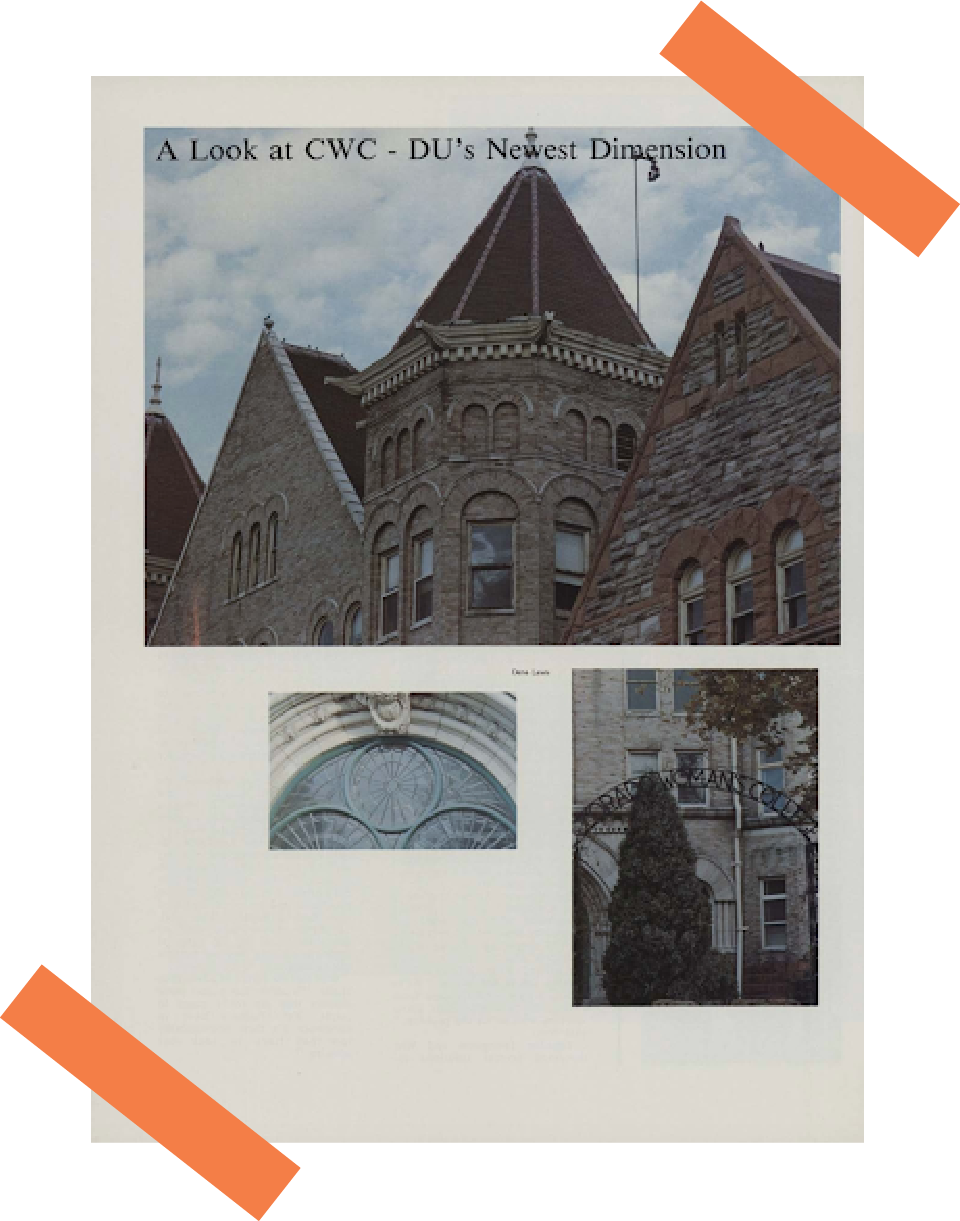
IV. Johnson & Wales University
2000-2021
In 2000, Johnson & Wales University purchased the campus from University of Denver.
Johnson & Wales University (JWU) was founded as a school for business education in 1914 in Providence, Rhode Island, by Gertrude I. Johnson and Mary T. Wales, and by the time it purchased the former CWC campus in Denver, it had evolved to offer many different programs across its campuses, and was especially known for providing culinary arts and hospitality education.
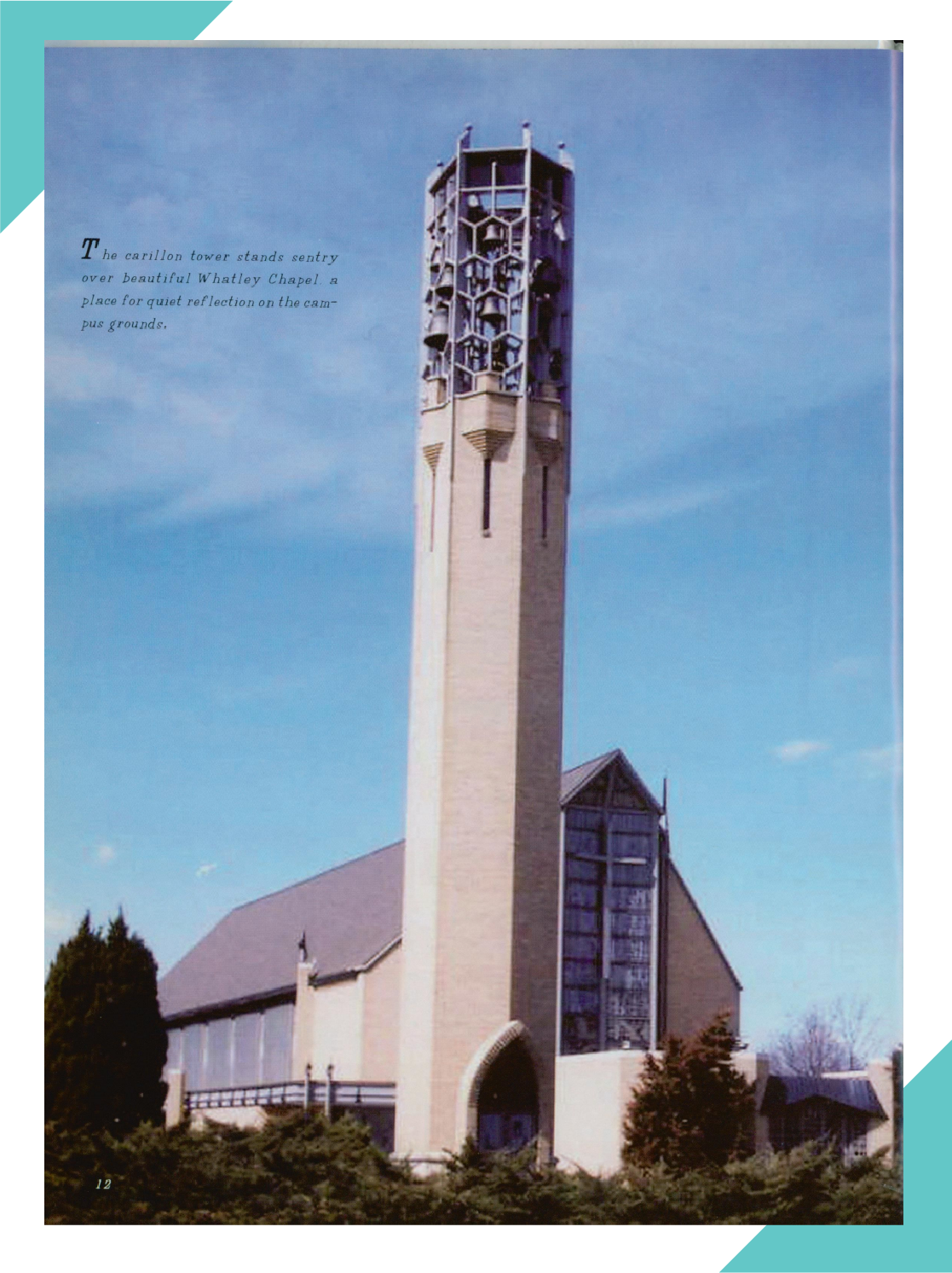
Students at JWU could take classes in Arts & Sciences, Business, Food Innovation & Technology, Health & Wellness, and Hospitality Management.
As one of the only schools in the Front Range to offer culinary and hospitality education, Johnson & Wales quickly made an impact on the local hospitality scene. JWU alumni went on to start their own restaurants, make nationally respected culinary innovations, and otherwise contribute to the hospitality culture of the Front Range.





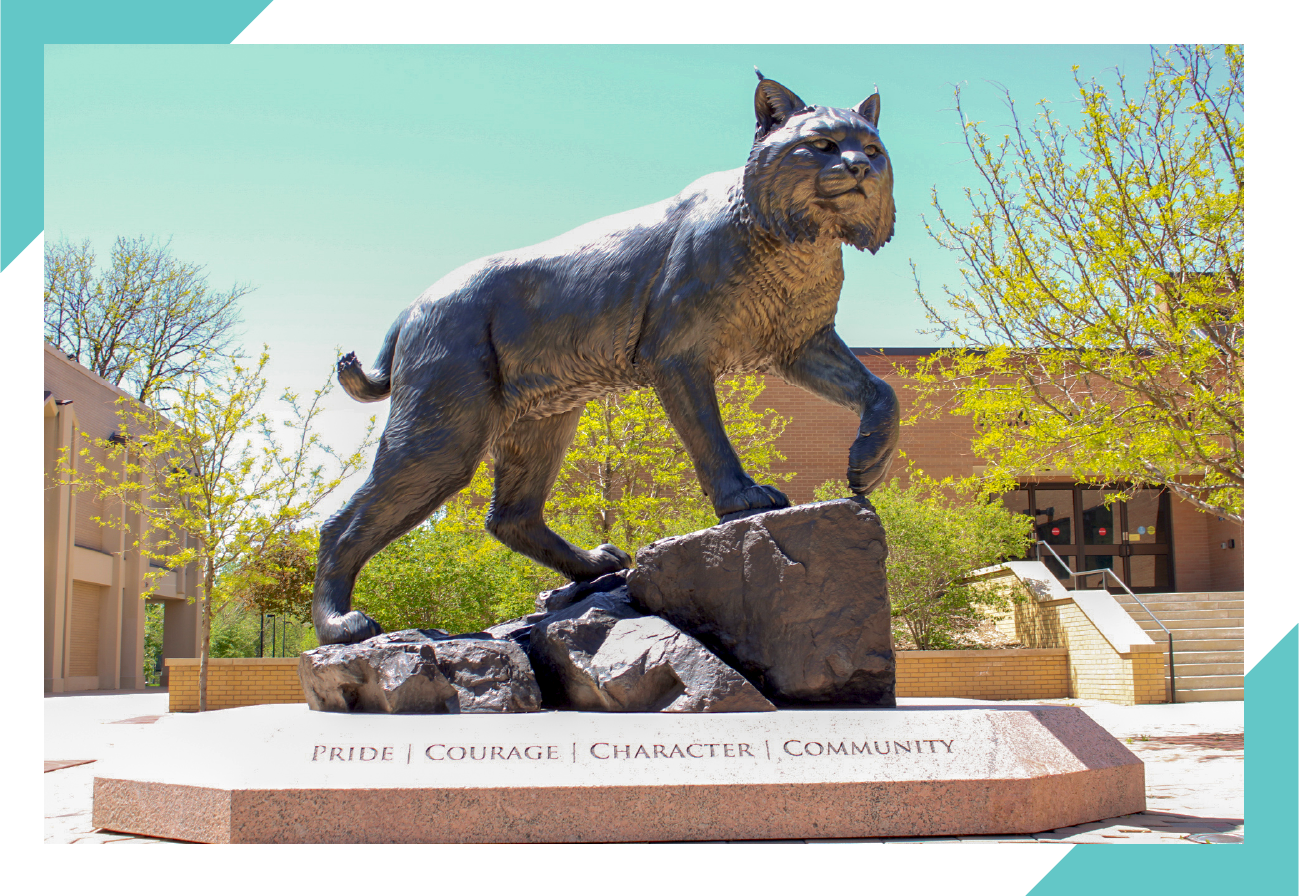
When JWU acquired the campus, many of the historic buildings on campus, including the main hall (formerly Treat Hall), had been shuttered for decades. Johnson & Wales restored many of the buildings on campus, including Treat Hall (which they renamed Centennial Hall) and Founder’s Hall in 2014.

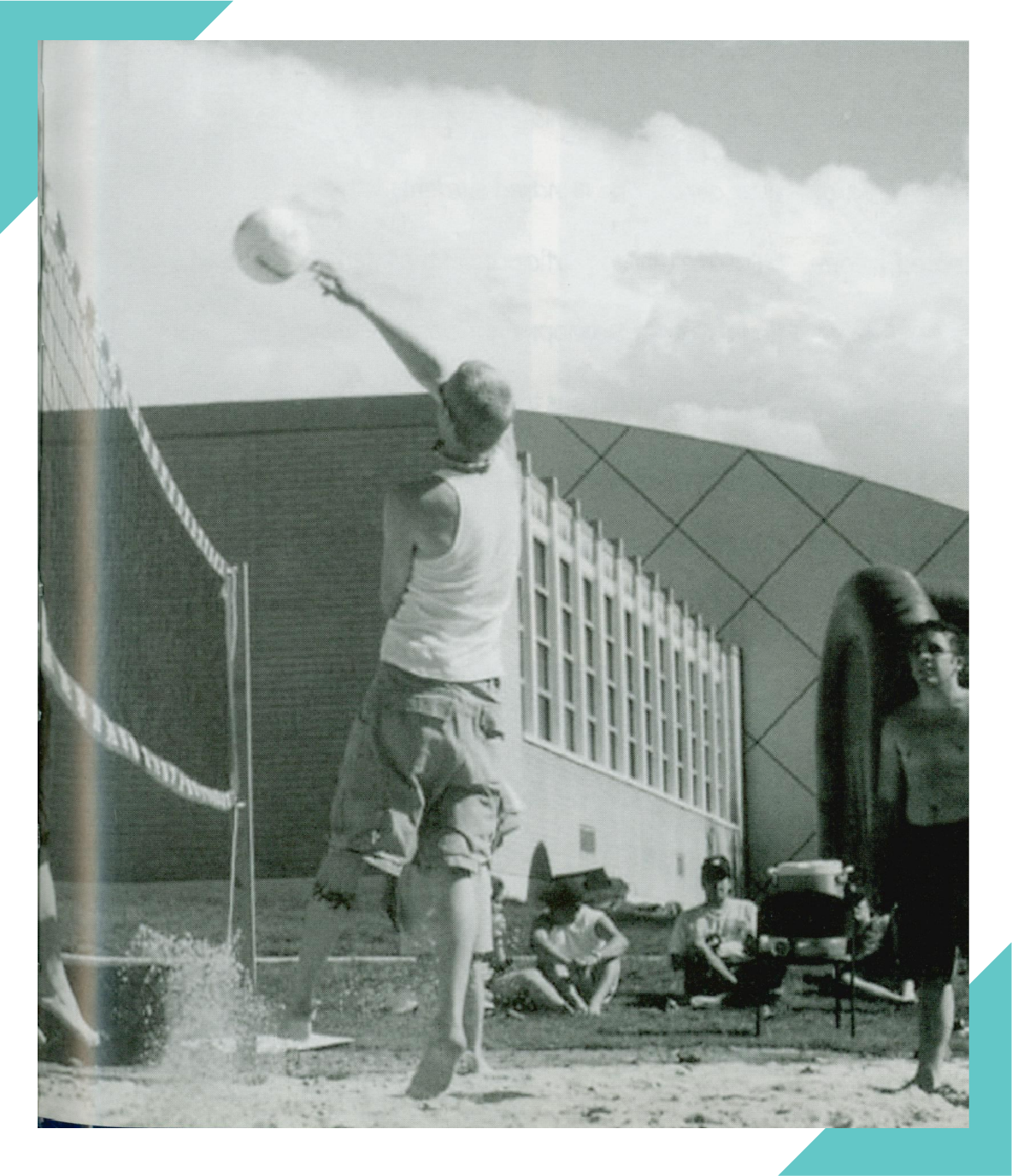
By 2020, changing dynamics of higher education and the pressures of the Covid-19 pandemic required that JWU had to reorganize and “go in a new strategic direction” in order to preserve their ability to offer quality education.
That year, Johnson & Wales announced that they would be closing their Denver campus as well as their North Miami campus after the 2020-2021 school year.
![“Johnson & Wales alumni have set down roots in Denver, and launched businesses and restaurants, including many local favorites, that have helped put Denver on the map as a food destination. [...] And it is my deepest hope that when you think back on your time at our Denver campus, that you will hold and cherish in your hearts the exceptional education experience we provided for our students and the relationships built with peers.” - JWU President Wiscott, 2021](https://www.urbanlandc.org/website/wp-content/uploads/2023/04/JWU-quote-2.png)
V. Mosaic Community Campus
2021-Present
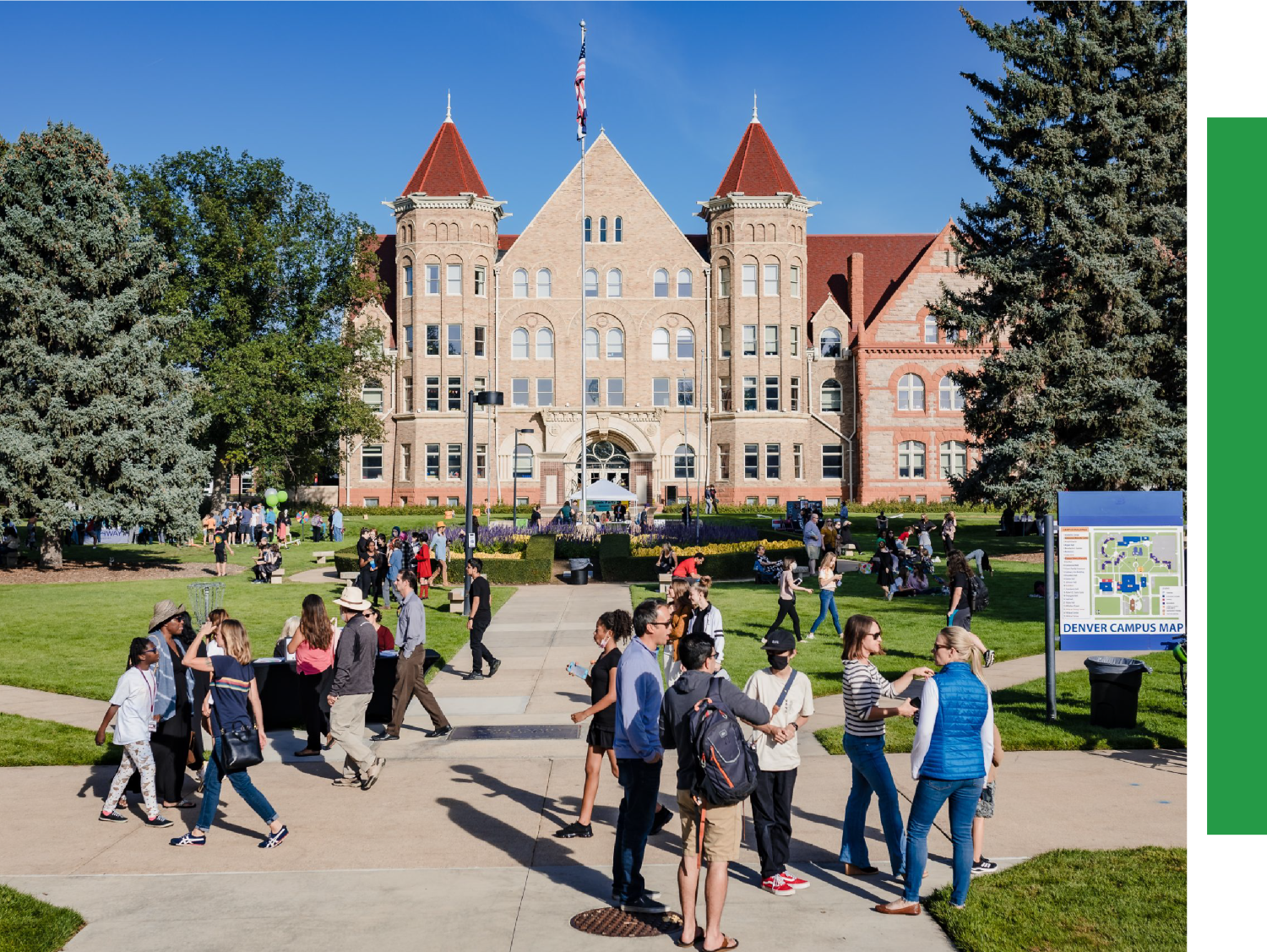
Campus Acquisition
On June 8, 2021, Urban Land Conservancy (ULC), Denver Public Schools (DPS), and Denver Housing Authority (DHA) finalized the purchase of the 25-acre campus.
“We understand that one of the primary reasons the University selected ULC was because of our ability to close the deal within a very tight timeframe,” said Aaron Miripol, ULC President & CEO. “We were able to close quickly due to our great partnerships with individuals and organizations in all sectors throughout the Metro Denver region and because ULC has access to a dedicated source of funding—the Metro Denver Impact Facility (MDIF)”.




A New Vision
The vision for a new community campus started with Dr. Anthony McWright, the Executive Principal of Denver School of the Arts (DSA), who, when he learned of Johnson & Wales’ closing, began thinking of ways to expand DSA to the campus and increase DSA’s capacity so that more students could access the incredible arts-focused education it provides. Dr. McWright and Denver Public Schools then engaged Denver Housing Authority and Urban Land Conservancy to help preserve the campus.
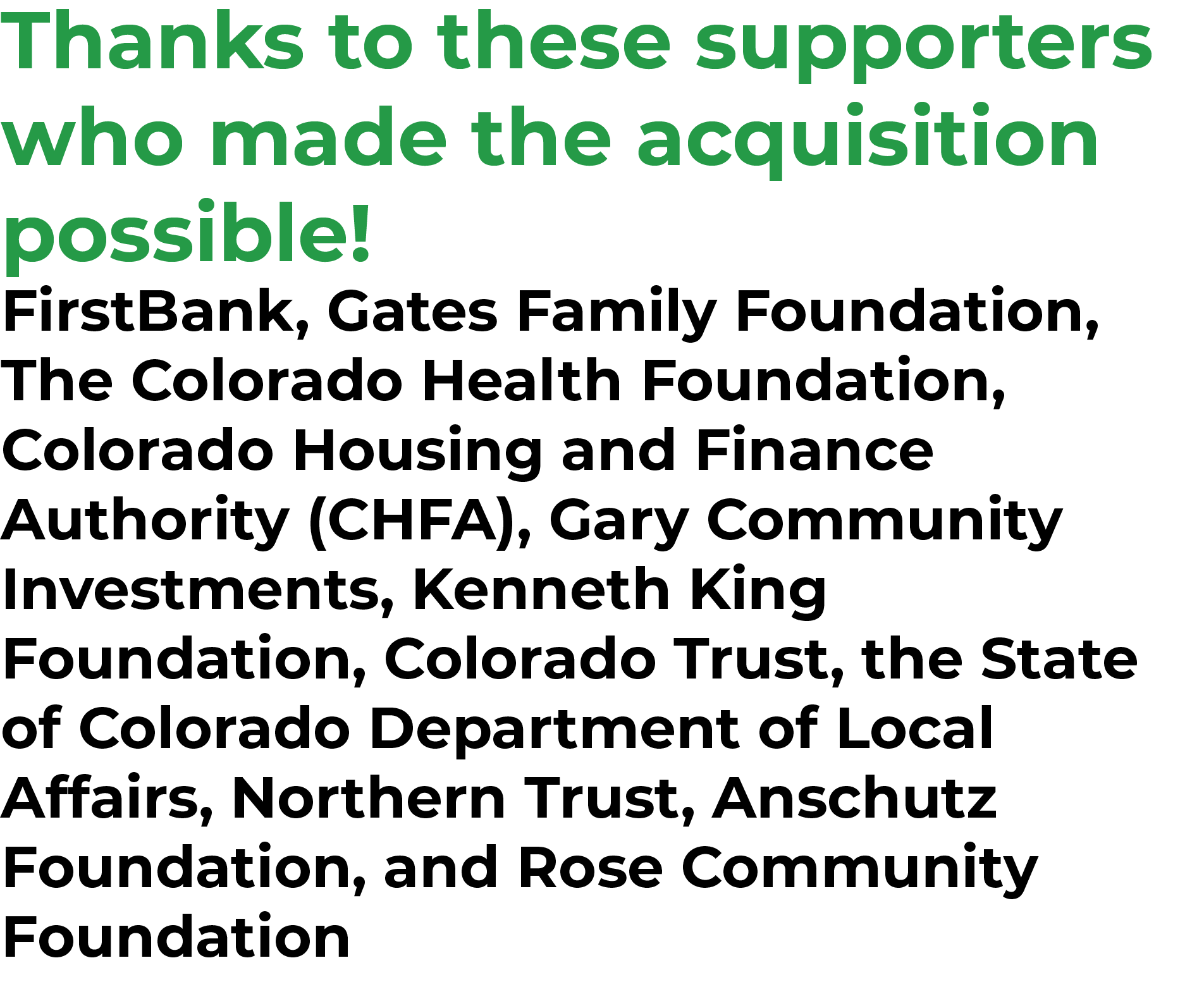
“The speed at which this deal was put together and all the parties involved is definitely a deal ULC was built for,” said Erin Clark, ULC’s former VP of Master Site Development. “We do deals that have not been done before… We exist to do deals like this, which meet our mission for the last 18 years.”
A Tale of Two Cities
When Johnson & Wales closed their Denver campus in 2020, they also closed their Miami campus. Each campus sold in the summer of 2021 at comparable prices, but that’s where the similarities stop. The differences between the future of these campuses exemplifies the challenges and opportunities of urban preservation, adaptive reuse, and affordable development.
Denver
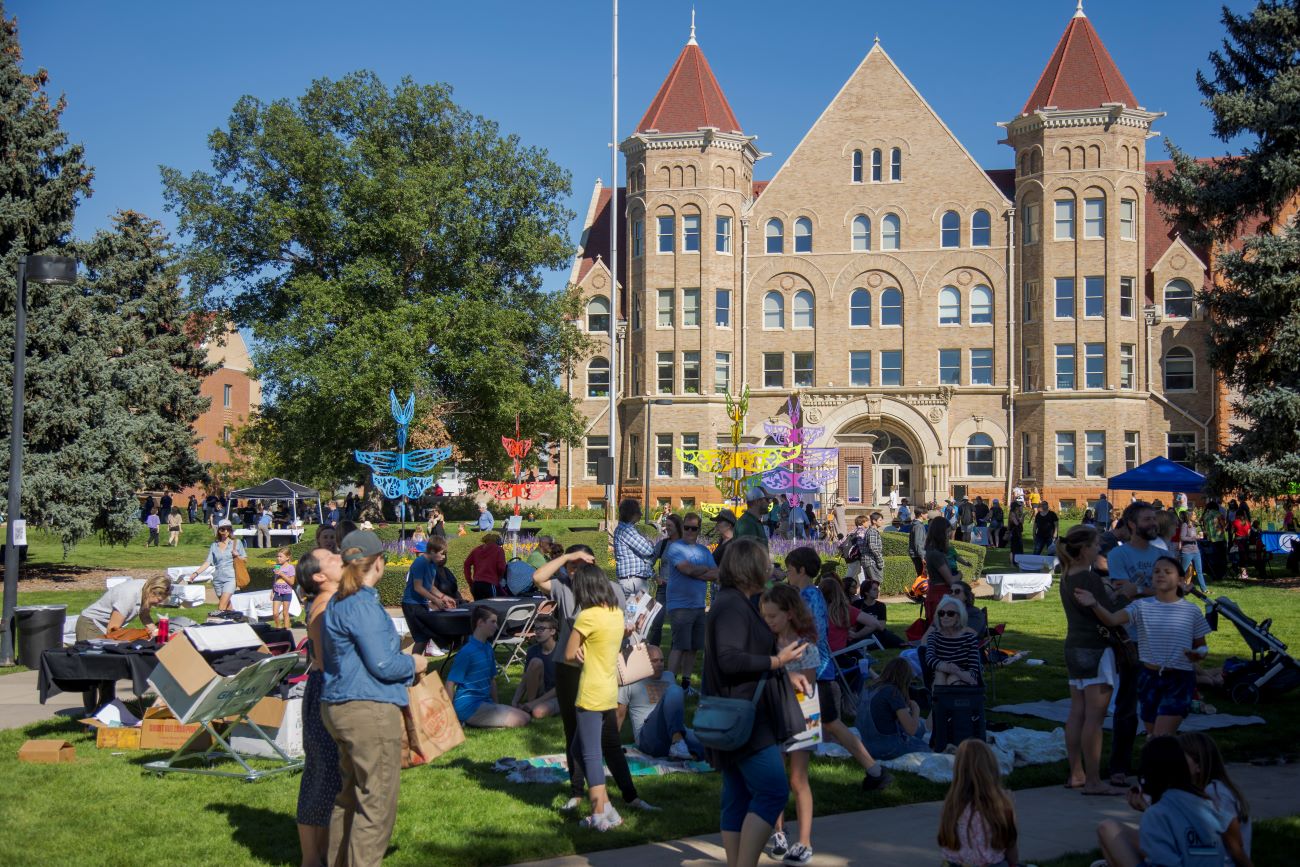
Urban Land Conservancy, Denver Housing Authority, and Denver Public Schools bought the Denver campus with the express intention to increase education access, prevent displacement in the neighborhood, preserve the historic buildings, and provide community-serving spaces. By making use of the Metro Denver Impact Facility as well as grant funding, ULC, DHA, and DPS were able to compete against for-profit real estate companies. “We were one of three finalists and the only non-profit. The two competing bids were looking at redevelopment and possibly demolishing the campus. That became part of our motivation to make this thing work. We wanted to serve the community by preserving the campus,” said Angelle Fouther, former Communications Director at Urban Land Conservancy. Now, the campus is preserved, affordable to the schools and nonprofits who call Mosaic home, and open to the community.
News stories about the Denver campus:
Front Porch- New Life for Johnson & Wales Campus
Denverite- Here’s the latest on the historic Johnson and Wales University campus in South Park Hill

Miami
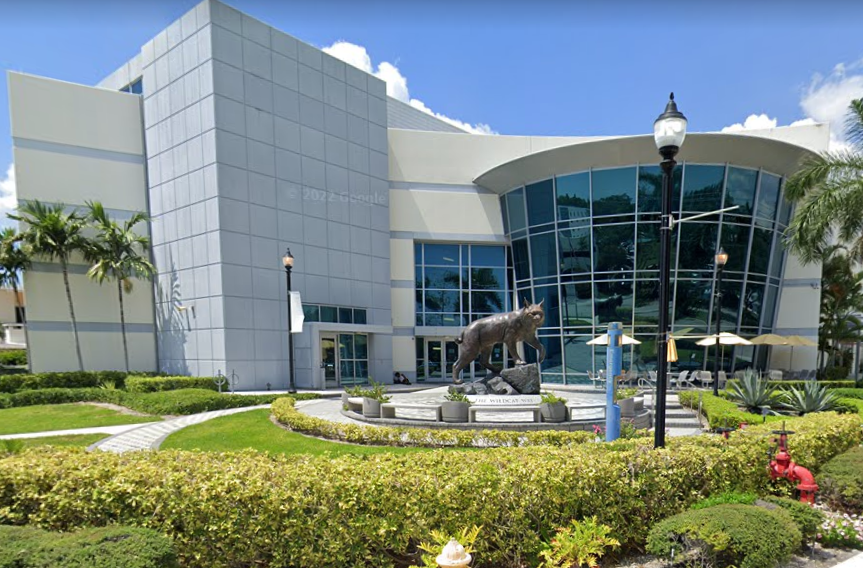
The Miami campus was purchased by Property Markets Group, who subdivided the campus into twenty-eight parts and re-sold them to a variety of different owners for a high profit, in some cases more than doubling the price. Many of the parcels will be market-rate apartment buildings. There will also be K-5 education provided by Doral College on 8 acres of the campus, and the City of North Miami has leased JWU’s former recreation center.
News stories about the Miami campus:
PMG sells its last Johnson & Wales University property in $11M flip
The Related Group Plans to Build on a Parcel of the North Miami Campus of Johnson & Wales University
Property Sales Continue at Former JWU Campus
Comparing these two real estate cases shows that not only is it possible for nonprofits to leverage innovative funding strategies and strong partnerships to compete in a for-profit real estate market, it’s necessary to keep land affordable and communities strong.
Campus Renaming
To embrace its new identity as a community space, the campus needed a new name. A committee that included representatives from each of the new organizations on campus as well as representatives from the three former colleges was formed to rename the campus. Community members submitted more than 110 name suggestions, and with help from Watson Wenk Group, Historic Denver, Blair Caldwell Research Library, and History Colorado, the renaming committee selected Mosaic Community Campus as the new name.


“We are very excited about the name, Mosaic Community Campus,” said Aaron Martinez, Vice President of Operations and Sustainability for ULC and President of the newly formed Campus Owners’ Association. “When we were considering the final list of potential names presented by the Renaming Committee, ‘Mosaic’ stood out as the clear front runner. It perfectly embodies the campus goals of providing an accessible community hub for quality education, economic development, and affordable living opportunities for people from all socioeconomic backgrounds, races, and ethnicities.”
Collective Campus Vision

Campus Partners
Archway Communities, an affordable housing nonprofit, now owns the four residential buildings on the east side of the campus: Johnson, Wales, Presidents, and Founders Halls. Archway is currently renovating the halls into 154 affordable family units. Archway is scheduled to complete construction, which will not alter the external appearance of the structures, in early 2024.
In the four buildings, Archway plans to construct 58 one-bedroom units, 70 two-bedroom units and 26 three-bedroom units, all affordable to people making anywhere from 30 to 60 percent of the area median income. Thirty percent of the AMI in Denver for a four-person household is $35,150, while 60 percent of the AMI for a same-sized household is $70,320.
The developments will utlize an array of funding mechanisms. Aside from a loan from the City of Denver’s HOST, Archway is using other methods to pay for the project, including federal and state low-income housing tax credits. Urban Land Conservancy will keep the land underneath the housing in our community land trust.
Archway’s mission is to elevate lives by providing access to affordable housing, food security and the supportive social services people need to thrive. Learn more.
Denver Housing Authority (DHA) owns two dorms on the south side of the campus, Tiangelo and Gaebe Halls, with plans to convert them into affordable rental apartments for seniors.
DHA is the largest Public Housing Authority in the Rocky Mountain Region. DHA has a portfolio of over 13,000 units and provides affordable housing for over 26,000 Denver residents.
DHA’s mission is to develop and provide high-quality, affordable housing with responsive services, enabling people and communities to thrive. Learn more.
Denver Public Schools has purchased four buildings on the campus, including the old student union.
According to DSA principal Anthony McWright, the acquisition of the buildings will allow Denver School of the Arts to expand and serve greater numbers of students, particularly students of color. “I’m a child of the arts. The arts changed my life, and I want to be able to create more access to arts classes for more students in the Denver metro area,” said McWright.
Currently, 1,100 students are enrolled at the school. McWright hopes eventually to expand that by 800-1,200 additional students. During the next several months, he will seek input from teachers, students, and the community about how to organize a larger school. One idea is to house grades 6-8 in the school’s current building, and the high school in the newly acquired buildings.
“Part of our discussions will be how to make this a real community hub. What programs can we offer after school? During the summer? How can we partner with other arts organizations?” said McWright.
Currently, Denver Public Schools is using the Aspen Building on the campus to offer language classes to refugee students through Emily Griffith Technical college.
Immediately after the acquisition of the campus, administrators of St. Elizabeth’s School, previously located at 23rd Ave. and Gaylord Streets, took over Centennial Hall, the oldest building on campus. St. Elizabeth’s School serves children aged kindergarten through eighth grade with a broad, inclusive curriculum.
According to Adriana Murphy, the head of the school, the move to the campus is allowing the school to grow its enrollment while also expanding its programming. “We were able to finalize all interior work by mid-August, and were also able to add a playground, which was completed in mid-October. The expanded space has been transformative for the school day at St. Elizabeth’s. The students love being able to move to different classrooms throughout the day, and having quiet, designated spaces for library, chapel, learning support, and counseling support has been a very positive change for many of our students. The middle schoolers love having their own floor of the building, and many of them have said that the feeling of being on a college campus has made them feel more prepared not only for high school, but for the potential to attend college after that. Our Great Hall has also been a great place to have all-school meetings in a setting that fits everyone comfortably, and it was wonderful to be able to host our Annual Holiday Concert this past December in a space that fit our entire community so easily.”
St. Elizabeth’s School has been serving Denver for 15 years as an intentionally inclusive school with a dedication to equity, belonging, and educational opportunity for all students–a mix of races, ethnicities, faiths, and family cultures that make up Denver. An individualized tuition plan allows the school to enroll families from a broad socio-economic spectrum that is truly representative of the neighborhoods it serves.
Kitchen Network is a nonprofit kitchen incubator empowering local food entrepreneurs by providing accessible and inclusive commercial kitchens, with support from a network of industry experts. The organization is managed by BuCu West, and has two locations: their original facility on Morrison Road in Denver’s Westwood neighborhood, and their new facility on Mosaic Community Campus.
Their facility on campus is “a kitchen incubator unlike any other”, which the organization uses to incubate food business, offer kitchen space, and provide support and guidance for their members.
Some of Kitchen Network’s partners include Food Business Consulting, Cholon Restaurant Group, D Bar Restaurant, FAETH Therapeutics, Work Options, Rocky Mountain Chefs of Colorado, Apotheon Foundation, Arts Students League of Denver, Youtopia, MetroCaring, We Don’t Waste, and Roots Colorado – Dirt Coffee Bar, where you can grab a delicious cup of coffee on campus! Learn more.
Urban Land Conservancy preserves, develops, stewards, and manages permanently affordable housing and shared office space for nonprofits and mission-minded organizations in Metro Denver and surrounding communities.
The purchase of Mosaic Community Campus was ULC’s largest purchase to date; ULC owns the land under all buildings on the East Campus.
Connecting the Campus and Community
Outreach to the communities surrounding the campus began even prior to the purchase of the campus. “Real estate deals of this magnitude can be tricky, especially where so many partners are involved,” said Angelle Fouther, former Communications Director for ULC. “It was important to provide information to community members throughout the process, and we worked to create channels of communications between campus partners and community members and between the partners themselves. This has resulted in several collaborations and the campus is now far more open and accessible than ever before.”
Governor Polis on Campus
Two months after the campus acquisition in 2021, Colorado Governor Jared Polis visited the campus as part of his Powering the Comeback Tour. With the goals of highlighting the resiliency and resurgence of Colorado’s businesses, the Governor toured two of the buildings on the east side of the campus: the state-of-the-art Culinary Arts Building and Vail Hall, both home to Kitchen Network.
In September of 2022, Governor Polis returned to campus to congratulate Kitchen Network for receiving a Tourism Recovery Marketing Grant through the American Rescue Plan. The $1.8 million grant to the BuCu West Development Corporation, operator of the Kitchen Network, was given to support local and regional food industry entrepreneurs by expanding the incubator’s capacity to provide culinary training, business classes, and financial literacy to food businesses. This EDA grant was matched with $890,301 in local funds and is expected to create 763 jobs, according to grantee estimates.
“This new welcome support for innovative Colorado food industry entrepreneurs will help create good-paying jobs and grow Colorado’s leadership in agriculture, food tech, and culinary excellence,” said Governor Jared Polis.
Public Art
ULC and campus partners worked with nonprofit PlatteForum to design a public art structure for the central campus quad. PlatteForum is a Denver-based arts nonprofit that connects young artists to professionals in order to remove barriers to success, provide support for their creativity, and empower them to reach their full artistic potential. PlatteForum artists Michael Gadlin, Axel Leonhardt, and Zaida Sever led the creation of the sculpture. They shared a vision with the campus partners to create an art piece that took inspiration from the colors and architectural elements of the campus and invoked the collaborative spirit of the campus.
The artists engaged the talents of high school students from Denver School of the Arts and elementary school students from St. Elizabeth’s School, leading them in a drawing session where the students sketched the cut-out designs inside the wings of the sculpture.
The sculpture was unveiled at a campus dedication ceremony and second annual community-wide block party in September of 2022.







Neutralizing Displacement
The goal of neutralizing displacement in the Park Hill community and neighboring East Colfax was a driving factor in ULC’s decision to partner in purchasing of the campus. Park Hill, which has already experienced advanced gentrification, is the 8th wealthiest neighborhood in Denver, and has become unaffordable for many Denver residents. East Colfax, which has nearly four times as many families living underneath the poverty line as Park Hill, is currently especially vulnerable to gentrification and displacement.
This is why it is so important to use the campus as an anchor in these neighborhoods, and mitigate displacement by offering affordable housing and economic development opportunities.
Open Space
For the first time in its history, the campus’s central quad is held in an open space easement, which means the quad is completely accessible and open to all community members from sunrise to sunset. You can view the quad rules here.

Annual Block Party
The first Campus/Community Block Party took place in late September 2021 and built upon the Denver School of the Arts Block Party, previously held in the DSA parking lot. Opened to the entire community, this gathering offered an opportunity to showcase the talents of DSA students and allow DSA families as well as residents of adjacent neighborhoods to visit the campus and enjoy food, entertainment, and family fun while learning more about the current and future plans for the campus. More than 1200 people attended the event. The second annual block party was held in 2022, with even more entertainment, activities, food options, and attendees. The 2023 block party will be held in late September; stay tuned to join us!

